The Ending Of The Visit Explained
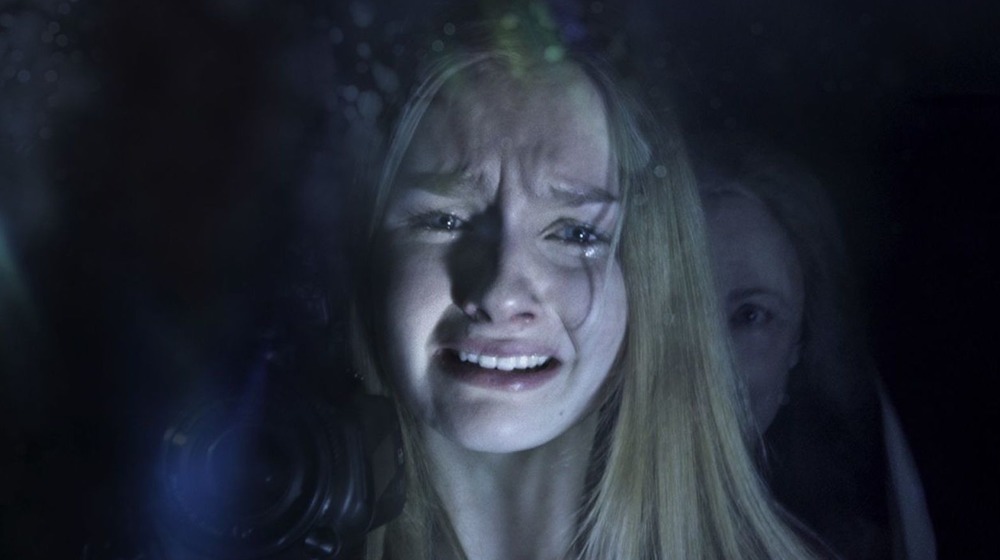
Contains spoilers for The Visit
M. Night Shyamalan is notorious for using dramatic twists towards the endings of his films, some of which are pulled off perfectly and add an extra layer of depth to a sprawling story (hello, Split ). Some of the director's other offerings simply keep the audience on their toes rather than having any extra subtext or hidden meaning. Shyamalan's 2015 found-footage horror-comedy The Visit , which he wrote and directed, definitely fits in the latter category, aiming for style over substance.
The Visit follows 15-year-old Becca Jamison (Olivia DeJonge) and her 13-year-old brother Tyler (Ed Oxenbould) when they spend the week with their mother's estranged parents, who live in another town. Loretta (played by WandaVision 's Kathryn Hahn ) never explained to her children why she separated herself away from her parents, but clearly hopes the weekend could help bring the family back together.
Although The Visit occasionally toys with themes of abandonment and fear of the unknown, it wasn't particularly well-received by critics on its initial release, as many struggled with its bizarre comedic tone in the found-footage style. So, after Tyler and his camera record a number of disturbing occurrences like Nana (Deanna Dunagan) projectile-vomiting in the middle of the night and discovering "Pop Pop"'s (Peter McRobbie) mountain of used diapers, it soon becomes clear that something isn't right with the grandparents.
Here's the ending of The Visit explained.

The Visit's twist plays on expectations
Because Shyamalan sets up the idea of the separation between Loretta and her parents very early on — and doesn't show their faces before Becca and Tyler meet them — the film automatically creates a false sense of security. Even more so since the found-footage style restricts the use of typical exposition methods like flashbacks or other scenes which would indicate that Nana and Pop Pop aren't who they say they are. Audiences have no reason to expect that they're actually two escapees from a local psychiatric facility.
The pieces all come together once Becca discovers her real grandparents' corpses in the basement, along with some uniforms from the psychiatric hospital. It confirms "Nana" and "Pop-Pop" escaped from the institution and murdered the Jamisons because they were a similar age, making it easy to hide their whereabouts from the authorities. And they would've gotten away with it too, if it weren't for those meddling kids.)
However, after a video call from Loretta reveals that the pair aren't her parents, the children are forced to keep up appearances — but the unhinged duo start to taunt the siblings. Tyler in particular is forced to face his fear of germs as "Pop Pop" wipes dirty diapers in his face. The germophobia is something Shyamalan threads through Tyler's character throughout The Visit, and the encounter with "Pop Pop" is a basic attempt of showing he's gone through some kind of trial-by-fire to get over his fears.
But the Jamison kids don't take things lying down: They fight back in vicious fashion — a subversion of yet another expectation that young teens might would wait for adults or law enforcement officers to arrive before doing away with their tormentors.
Its real message is about reconciliation
By the time Becca stabs "Nana" to death and Tyler has repeatedly slammed "Pop-Pop"'s head with the refrigerator door, their mother and the police do arrive to pick up the pieces. In a last-ditch attempt at adding an emotional undertone, Shyamalan reveals Loretta left home after a huge argument with her parents. She hit her mother, and her father hit her in return. But Loretta explains that reconciliation was always on the table if she had stopped being so stubborn and just reached out. One could take a domino-effect perspective and even say that Loretta's stubbornness about not reconnecting and her sustained distance from her parents put them in exactly the vulnerable position they needed to be for "Nana" and "Pop-Pop" to murder them.
Loretta's confession actually mirrors something "Pop-Pop" told Tyler (before his run-in with the refrigerator door): that he and "Nana" wanted to spend one week as a normal family before dying. They should've thought about that before murdering a pair of innocent grandparents, but here we are.
So, is The Visit trying to say that if we don't keep our families together, they'll be replaced by imposters and terrify our children? Well, probably not. The Visit tries to deliver a message about breaking away from old habits, working through your fears, and stop being so stubborn over arguments that don't have any consequences in the long-run. Whether it actually sticks the landing on all of those points is still up for debate.
Movie Reviews
Tv/streaming, collections, great movies, chaz's journal, contributors.

Now streaming on:
M. Night Shyamalan had his heyday almost 20 years ago. He leapt out of the gate with such confidence he became a champion instantly. And then...something went awry. He became embarrassingly self-serious, his films drowning in pretension and strained allegories. His famous twists felt like a director attempting to re-create the triumph of " The Sixth Sense ," where the twist of the film was so successfully withheld from audiences that people went back to see the film again and again. But now, here comes " The Visit ," a film so purely entertaining that you almost forget how scary it is. With all its terror, "The Visit" is an extremely funny film.
There are too many horror cliches to even list ("gotcha" scares, dark basements, frightened children, mysterious sounds at night, no cellphone reception), but the main cliche is that it is a "found footage" film, a style already wrung dry. But Shyamalan injects adrenaline into it, as well as a frank admission that, yes, it is a cliche, and yes, it is absurd that one would keep filming in moments of such terror, but he uses the main strength of found footage: we are trapped by the perspective of the person holding the camera. Withhold visual information, lull the audience into safety, then turn the camera, and OH MY GOD WHAT IS THAT?
"The Visit" starts quietly, with Mom ( Kathryn Hahn ) talking to the camera about running away from home when she was 19: her parents disapproved of her boyfriend. She had two kids with this man who recently left them all for someone new. Mom has a brave demeanor, and funny, too, referring to her kids as "brats" but with mama-bear affection. Her parents cut ties with her, but now they have reached out from their snowy isolated farm and want to know their grandchildren. Mom packs the two kids off on a train for a visit.
Shyamalan breaks up the found footage with still shots of snowy ranks of trees, blazing sunsets, sunrise falling on a stack of logs. There are gigantic blood-red chapter markers: "TUESDAY MORNING", etc. These choices launch us into the overblown operatic horror style while commenting on it at the same time. It ratchets up the dread.
Becca ( Olivia DeJonge ) and Tyler ( Ed Oxenbould ) want to make a film about their mother's lost childhood home, a place they know well from all of her stories. Becca has done her homework about film-making, and instructs her younger brother about "frames" and "mise-en-scène." Tyler, an appealing gregarious kid, keeps stealing the camera to film the inside of his mouth and his improvised raps. Becca sternly reminds him to focus.
The kids are happy to meet their grandparents. They are worried about the effect their grandparents' rejection had on their mother (similar to Cole's worry about his mother's unfinished business with her own parent in "The Sixth Sense"). Becca uses a fairy-tale word to explain what she wants their film to do — it will be an "elixir" to bring home to Mom.
Nana ( Deanna Dunagan ), at first glance, is a Grandma out of a storybook, with a grey bun, an apron, and muffins coming out of the oven every hour. Pop Pop ( Peter McRobbie ) is a taciturn farmer who reminds the kids constantly that he and Nana are "old."
But almost immediately, things get crazy. What is Pop Pop doing out in the barn all the time? Why does Nana ask Becca to clean the oven, insisting that she crawl all the way in ? What are those weird sounds at night from outside their bedroom door? They have a couple of Skype calls with Mom, and she reassures them their grandparents are "weird" but they're also old, and old people are sometimes cranky, sometimes paranoid.
As the weirdness intensifies, Becca and Tyler's film evolves from an origin-story documentary to a mystery-solving investigation. They sneak the camera into the barn, underneath the house, they place it on a cabinet in the living room overnight, hoping to get a glimpse of what happens downstairs after they go to bed. What they see is more than they (and we) bargained for.
Dunagan and McRobbie play their roles with a melodramatic relish, entering into the fairy-tale world of the film. And the kids are great, funny and distinct. Tyler informs his sister that he wants to stop swearing so much, and instead will say the names of female pop singers. The joke is one that never gets old. He falls, and screams, "Sarah McLachlan!" When terrified, he whispers to himself, " Katy Perry ... " Tyler, filming his sister, asks her why she never looks in the mirror. "Your sweater is on backwards." As he grills her, he zooms in on her, keeping her face off-center, blurry grey-trunked trees filling most of the screen. The blur is the mystery around them. Cinematographer Maryse Alberti creates the illusion that the film is being made by kids, but also avoids the nauseating hand-held stuff that dogs the found-footage style.
When the twist comes, and you knew it was coming because Shyamalan is the director, it legitimately shocks. Maybe not as much as "The Sixth Sense" twist, but it is damn close. (The audience I saw it with gasped and some people screamed in terror.) There are references to " Halloween ", "Psycho" (Nana in a rocking chair seen from behind), and, of course, " Paranormal Activity "; the kids have seen a lot of movies, understand the tropes and try to recreate them themselves.
"The Visit" represents Shyamalan cutting loose, lightening up, reveling in the improvisational behavior of the kids, their jokes, their bickering, their closeness. Horror is very close to comedy. Screams of terror often dissolve into hysterical laughter, and he uses that emotional dovetail, its tension and catharsis, in almost every scene. The film is ridiculous on so many levels, the story playing out like the most monstrous version of Hansel & Gretel imaginable, and in that context, "ridiculous" is the highest possible praise.

Sheila O'Malley
Sheila O'Malley received a BFA in Theatre from the University of Rhode Island and a Master's in Acting from the Actors Studio MFA Program. Read her answers to our Movie Love Questionnaire here .
Now playing

The Animal Kingdom
Monica castillo.

Wicked Little Letters

Clint Worthington

Glenn Kenny

Ghostbusters: Frozen Empire
Christy lemire.

We Were the Lucky Ones
Robert daniels, film credits.

The Visit (2015)
Rated PG-13 disturbing thematic material including terror, violence and some nudity, and for brief language
Kathryn Hahn as Mother
Ed Oxenbould as Tyler Jamison
Benjamin Kanes as Dad
Peter McRobbie as Pop-Pop
Olivia DeJonge as Rebecca Jamison
Deanna Dunagan as Nana
- M. Night Shyamalan
Cinematography
- Maryse Alberti
- Luke Franco Ciarrocch
Latest blog posts

The Movies That Underwent Major Changes After Their Festival Premiere

Netflix's Dead Boy Detectives Is A Spinoff Stuck In Limbo

Preview of Tributes at the 58th Karlovy Vary International Film Festival

Pioneering Actor-Producer Terry Carter Dies
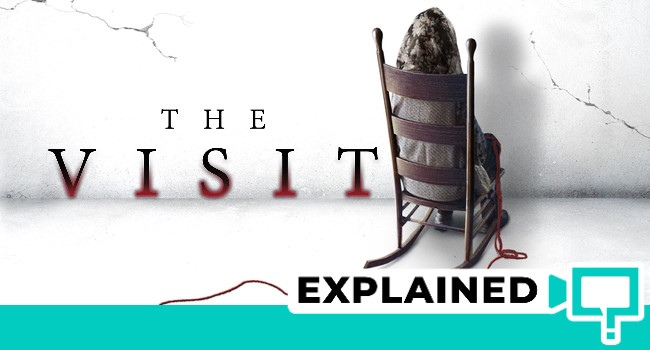
The Visit Explained (Plot And Ending)
The Visit is a 2015 horror thriller directed by M. Night Shyamalan. It follows two siblings who visit their estranged grandparents only to discover something is very wrong with them. As the children try to uncover the truth, they are increasingly terrorized by their grandparents’ bizarre behaviour. Here’s the plot and ending of The Visit explained; spoilers ahead.

Hollywordle – Check out my new Hollywood Wordle game!
Where To Watch?
To find where to stream any movie or series based on your country, use This Is Barry’s Where To Watch .
Oh, and if this article doesn’t answer all of your questions, drop me a comment or an FB chat message, and I’ll get you the answer . You can find other film explanations using the search option on top of the site.
Here are links to the key aspects of the movie:
- – The Story
- – Plot Explained
- – Ending Explained
- – The Sense Of Dread
- – Separation, Remorse, and Personal Fears
- – Frequently Asked Questions Answered
- – Wrap Up
What is the story of The Visit?
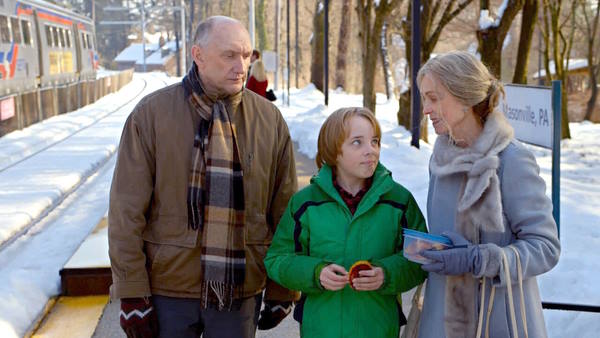
The Visit is about two kids visiting their grandparents for the first time. They are also going there to hope and rebuild a bridge between their mom and grandparents and help their mom heal after a painful divorce. The movie is in documentary form.
The Visit is one of the most unnerving and realistic horror stories. A good thing about classic horror movies is that, after the movie ends, you can switch it off and go to bed, knowing that you’re safe . Vampires, ghosts, and demonic powers don’t exist, and even if you are prone to these kinds of esoteric beliefs, there are safeguards. If your home is not built in an Indian burial ground and you haven’t bought any creepy-looking dolls from your local antiquary, you’re perfectly safe.
However, what about the idea of two kids spending five days with two escaped psychiatric ward patients in a remote farmhouse? Now, this is a thought that will send shivers down your spine. It’s a story that sounds not just realistic but real. It’s something that might have happened in the past or might happen in the future.
This is what The Visit is all about . This idea, coupled with documentary-form storytelling, is why the movie is so unnerving to watch.
The Visit: Plot Explained
Loretta’s past.
As a young girl, Loretta Jamison fell in love with her high school teacher and decided to skip her hometown with him. Before leaving, she had a heated altercation with her parents and hasn’t seen them since. At the movie’s start, she is a single mom of 15-year-old Becca and 14-year-old Tyler, and she hasn’t spoken to her parents in 15 years .
What really happened on the day Loretta left?
Loretta’s mom tries to stop her from leaving the house, and Loretta hits her mom, and her dad hits her. Soon after, her parents try to reach out to Loretta, but she refuses to take their calls, and years go by.
Meet The Grandparents
Years later, Loretta’s parents reach out to meet their grandchildren . The grandparents are, seemingly, wholly reformed and now even help at the local psychiatric hospital. Although initially not too fond of the idea, Loretta is persuaded by the insistence of her children. While she had no intention of visiting the parents, she permitted her children to pay their grandparents a five-day visit.
At The Grandparents’
Their first meeting with Nana and Pop Pop starts on the right foot. They start getting to know each other, and other than a simple generational gap, nothing seems too strange. The only thing that seems off is that they are warned not to leave the room after 9:30 in the evening .
The kids break this rule, and on the first night, they notice Nana acting erratically , projectile vomiting, scratching wallpaper with her bare hands, and running around the house on all fours. Grandpa appears paranoid and hides his adult diapers in the garden shed, and the situation escalates each day.
The Visit Ending Explained: What happens in the end?
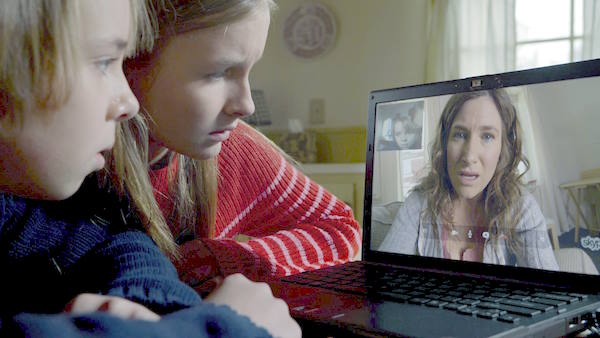
The ending of Visit has the kids finally showing the elderly couple to Loretta. She, completely horrified, states that those are not her parents . The pair posing as Pop Pop and Nana are escaped psychiatric institution patients who murdered their grandparents and took their places.
The kids survive, kill their captors, and are found alive and well by their mom and the police. Becca kills Nana with a shard from the mirror, thus symbolically overcoming her fear of her reflection. Tyler kills Pop Pop by repeatedly slamming him in the head with a refrigerator door after overcoming his germaphobia and anxiety about freezing.
The Sense Of Dread
The elements of horror in this movie are just perfectly executed . First of all, the film is shot as a documentary. Becca is an aspiring filmmaker who records the entire trip with her camera. From time to time, we see an interview of all the characters, which just serves as the perfect vessel for characterization.
No Ghouls or Cults
Another thing that evokes dread is realism . There are no supernatural beings or demonic forces. It’s just two kids alone in a remote farmstead with two creepy, deranged people. Even in the end, when Loretta finds out what’s happening, it takes her hours to get there with the police. The scariest part is that it’s not that hard to imagine something along those lines really happening.
The house itself is dread-inducing . The place is old and rustic. Like in The Black Phone soundproofing a room could have prevented kids from hearing Nana rummaging around the house without a clear idea of what was happening, but this was not the case, as the old couple weren’t that capable.
The characters themselves are perfectly played . Something is unnerving about Pop Pop and Nana from the very first scene. It’s the Uncanny Valley scenario where you feel that something’s off and shakes you to the core, but you have no idea what it is.
Separation, Remorse, and Personal Fears
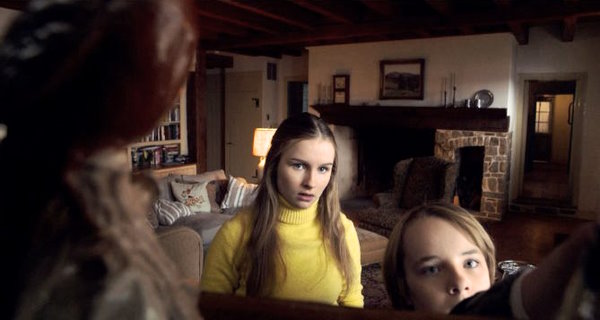
What this movie does the best is explore the ugly side of separation, old grudges, and remorse . The main reason why kids are insistent on visiting their grandparents is out of their desire to help their mom.
They see she’s remorseful for never working things out with her parents . In light of her failed marriage and the affair that caused it to end, she might live with the doubt that her parents were right all along. This makes her decision and altercation with her parents even worse. Reconciling when you know you were wrong is harder than forgiving the person who wronged you.
The Kids’ Perspective
There are personal fears and traumas of the kids . Tyler, in his childish naivete, is convinced that his father left because he was disappointed in him as a son. Tyler tells Becca that he froze during one game he played, which disappointed his dad so much that he had to leave. While this sounds ridiculous to any adult (and even Becca), it’s a matter of fact to Tyler. As a result of this trauma, Tyler also developed germaphobia. In Becca’s own words, this gives him a greater sense of control.
On the other hand, Becca refuses to look at herself in the mirror or stand in front of the camera if she can help it. Both kids had to overcome their fears to survive , which is a solid and clear metaphor for how these things sometimes turn out in real life.
Frequently Asked Questions Answered
The visit: what’s wrong with the grandparents who are the grandparents.
The people who hosted Becca and Tyler were runaway psychiatric hospital patients who murdered the real grandparents and took their place. Nana’s impostor (Claire) was actually responsible for murdering her children by drowning them in a well. Pop Pop’s impostor (Mitchell) wanted to give Claire a second chance at having kids / being a grandparent.
How did the imposter grandparents know about the kids’ visit?
It appears Claire and Mitchell hear the real Nana and Pop Pop brag about their grandkids’ visit. They also learned that neither the grandparents nor the kids had seen each other. The real grandparents appear to have been consulting in the same hospital Claire and Mitchell were being treated. The two crazies take this opportunity to break out, kill the real grandparents and go to the station to pick up the children.
The Visit: What is Sinmorfitellia?
Claire and Mitchell believe that Sinmorfitellia is an alien planet, and the creatures from there lurk on Earth. They spit into the waters of wells and ponds all day, which can put people into a deep sleep. They take sleeping with the fishes quite literally. Long ago, Claire drowned her children believing they would go to Sinmorfitellia.
The Visit: What happened to the real grandparents?
Claire and Mitchel killed Nana and Pop Pop and put them in the basement. This information went unnoticed because Becca’s laptop’s camera was damaged by Nana, so Loretta could not confirm the imposters. Claire and Mitchel were not present every time someone came to visit, so no one suspected foul play except Stacey, who received help from the real grandparents. As a result, she is killed.
What did Claire and Mitchel intend to do?
They plan to go to Sinmorfitellia with Becca and Tyler. They all plan to die on that last night and enter the well, which they believe is their path to the alien planet where they can be happy together. This is perhaps why the grandparents hang Stacey outside the house because they don’t care about being caught.
The Visit: What’s wrong with Nana?
We don’t know what caused Nana’s mental illness, but she was crazy enough to kill her two children by putting them in suitcases and drowning them in a pond. It appears she suffers from schizophrenia as she has delusions.
The Visit: Wrap Up
From the standpoint of horror, The Visit has it all. An unnerving realistic scenario, real-life trauma, and an atmosphere of fear. Combine this with some of the best acting work in the genre and a documentary-style movie, and you’ve got yourself a real masterpiece.
On the downside, the movie leaves you with a lot of open questions like:
- Considering the kids have never seen the grandparents and are going alone, Loretta didn’t ensure her kids knew what her parents looked like?
- How are Claire and Mitchell out and about so close to the hospital without being caught?
- Considering they are mentally ill, how did Claire and Mitchell plot such a thorough plan? (e.g. strategically damaging the camera of the laptop)
- I understand Suspension Of Disbelief in horror films, but neither kids drop their cameras despite the terror they go through only so we, the audience, can get the entire narrative?
What were your thoughts on the plot and ending of the movie The Visit? Drop your comments below!

Stacey is a talented freelance writer passionate about all things pop culture. She has a keen eye for detail and a natural talent for storytelling. She’s a super-fan of Game of Thrones, Cats, and Indie Rock Music and can often be found engrossed in complex films and books. Connect with her on her social media handles to learn more about her work and interests.
Log in or sign up for Rotten Tomatoes
Trouble logging in?
By continuing, you agree to the Privacy Policy and the Terms and Policies , and to receive email from the Fandango Media Brands .
By creating an account, you agree to the Privacy Policy and the Terms and Policies , and to receive email from Rotten Tomatoes and to receive email from the Fandango Media Brands .
By creating an account, you agree to the Privacy Policy and the Terms and Policies , and to receive email from Rotten Tomatoes.
Email not verified
Let's keep in touch.

Sign up for the Rotten Tomatoes newsletter to get weekly updates on:
- Upcoming Movies and TV shows
- Trivia & Rotten Tomatoes Podcast
- Media News + More
By clicking "Sign Me Up," you are agreeing to receive occasional emails and communications from Fandango Media (Fandango, Vudu, and Rotten Tomatoes) and consenting to Fandango's Privacy Policy and Terms and Policies . Please allow 10 business days for your account to reflect your preferences.
OK, got it!
Movies / TV
No results found.
- What's the Tomatometer®?
- Login/signup
Movies in theaters
- Opening this week
- Top box office
- Coming soon to theaters
- Certified fresh movies
Movies at home
- Fandango at Home
- Netflix streaming
- Prime Video
- Most popular streaming movies
- What to Watch New
Certified fresh picks
- Challengers Link to Challengers
- I Saw the TV Glow Link to I Saw the TV Glow
- Música Link to Música
New TV Tonight
- Dead Boy Detectives: Season 1
- The Jinx: Season 2
- The Big Door Prize: Season 2
- Them: Season 2
- Knuckles: Season 1
- Velma: Season 2
- Secrets of the Octopus: Season 1
- Thank You, Goodnight: The Bon Jovi Story: Season 1
- We're Here: Season 4
Most Popular TV on RT
- Baby Reindeer: Season 1
- Fallout: Season 1
- Shōgun: Season 1
- Ripley: Season 1
- Under the Bridge: Season 1
- 3 Body Problem: Season 1
- We Were the Lucky Ones: Season 1
- Best TV Shows
- Most Popular TV
- TV & Streaming News
Certified fresh pick
- Dead Boy Detectives: Season 1 Link to Dead Boy Detectives: Season 1
- All-Time Lists
- Binge Guide
- Comics on TV
- Five Favorite Films
- Video Interviews
- Weekend Box Office
- Weekly Ketchup
- What to Watch
All Zendaya Movies Ranked by Tomatometer
Video Game TV Shows Ranked by Tomatometer
What to Watch: In Theaters and On Streaming
Awards Tour
Poll: Most Anticipated Movies of May 2024
Poll: Most Anticipated TV and Streaming Shows of May 2024
- Trending on RT
- Challengers
- Boy Kills World
- Marvel Movies In Order
- Play Movie Trivia
What to Know
An earnest drama, The Visit gains much emotional power through its fine performances.
Audience Reviews
Cast & crew.
Jordan Walker-Pearlman
Hill Harper
Obba Babatundé
Rae Dawn Chong
Billy Dee Williams
Marla Gibbs
Lois Waters
More Like This
Critics reviews.
- Universal Pictures
Summary A brother and sister are sent to their grandparents’ remote Pennsylvania farm for a weeklong trip. Once the children discover that the elderly couple is involved in something deeply disturbing, they see their chances of getting back home are growing smaller every day.
Directed By : M. Night Shyamalan
Written By : M. Night Shyamalan
Where to Watch
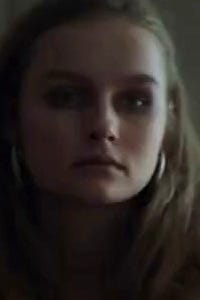
Olivia DeJonge
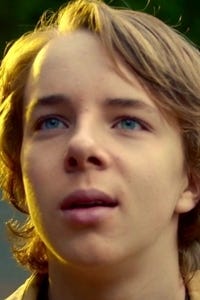
Ed Oxenbould
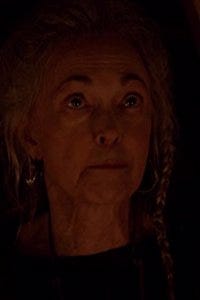
Deanna Dunagan
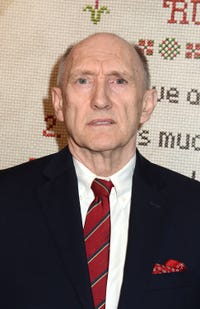
Peter McRobbie

Kathryn Hahn

Celia Keenan-Bolger
Samuel stricklen, patch darragh, jorge cordova, steve annan, man on the street, benjamin kanes, ocean james, young becca, seamus moroney, young tyler, erica lynne arden, train passenger, kevin austra, street walker, richard barlow, police officer, john buscemi, evan charles, michelle rose domb, cruise passenger, brian gildea, critic reviews.
- All Reviews
- Positive Reviews
- Mixed Reviews
- Negative Reviews
User Reviews
Related movies.
Rosemary's Baby
The Bride of Frankenstein
Don't Look Now
Invasion of the Body Snatchers
Frankenstein
Repulsion (re-release)
The Texas Chain Saw Massacre
It's Such a Beautiful Day
Eyes Without a Face [re-release]
Night of the Living Dead
The Innocents
The Invisible Man
The Wicker Man
I Saw the TV Glow
Related news.
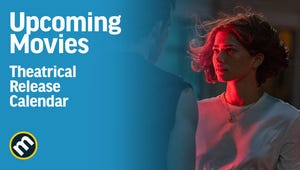
2024 Movie Release Calendar
Jason dietz.
Find release dates for every movie coming to theaters, VOD, and streaming throughout 2024 and beyond, updated weekly.
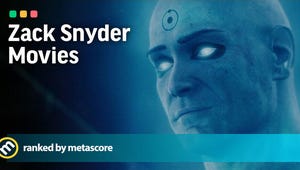
Every Zack Snyder Movie, Ranked
With the arrival of Zack Snyder's latest Rebel Moon chapter on Netflix, we rank every one of the director's films—from bad to, well, less bad—by Metascore.
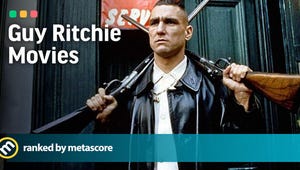
Every Guy Ritchie Movie, Ranked
We rank every one of the British director's movies by Metascore, from his debut Lock, Stock, and Two Smoking Barrels to his brand new film, The Ministry of Ungentlemanly Warfare.
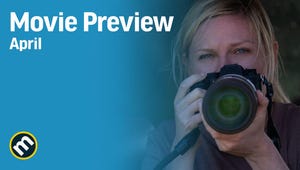
April Movie Preview (2024)
Keith kimbell.
The month ahead will bring new films from Alex Garland, Luca Guadagnino, Dev Patel, and more. To help you plan your moviegoing options, our editors have selected the most notable films releasing in April 2024, listed in alphabetical order.
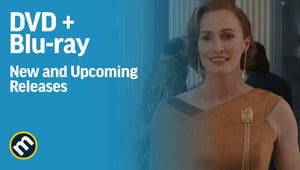
DVD/Blu-ray Releases: New & Upcoming
Find a list of new movie and TV releases on DVD and Blu-ray (updated weekly) as well as a calendar of upcoming releases on home video.
Recently, we've done several changes to help out this wiki, from deleting empty pages, improving the navigation, adding a rules page, as well as merging film infoboxes.
You can check out the latest overhauls that we have done on this wiki so far, as well as upcoming updates in our announcement post here .
- Horror films
- American fantasy films
- Films directed by M. Night Shyamalan
- Found Footage films
- 2010s films
- Rated PG-13
- View history
The Visit is a 2015 American "found footage" style horror-fantasy written and directed by M. Night Shyamalan , and produced by Shyamalan, Jason Blum, Marc Bienstock, Steven Schneider, and Ashwin Rajan.
The film stars Kathryn Hahn, Ed Oxenbould, Peter McRobbie, and Benjamin Kanes. It was released vis Universal Pictures on September 11, 2015.
- 3.1 Trailers
- 3.2 Reviews
- 5 References
Philadelphia teens, 15-year-old Becca (Olivia DeJonge) and her 13-year-old brother Tyler (Ed Oxenbould), prepare for a five-day visit with their maternal grandparents while their divorced mother, Loretta Jamison (Kathryn Hahn) goes on a cruise with her new boyfriend.
The two kids (who have never met their grandparents) intend to film a documentary about their visit. Loretta reveals that she has not spoken to her parents in fifteen years after having married her high-school teacher Corin, of whom her parents disapproved.
The father of Becca and Tyler, Corin left Loretta after ten years for another woman. Loretta tells Becca little about the disagreement she had with her parents that led to their estrangement, suggesting that Becca ask them for the details instead.
Becca and Tyler meet their grandparents (Deanna Dunagan and Peter McRobbie), who Becca refers to as "Nana" and "Pop Pop". At the isolated farmhouse, Becca and Tyler are instructed to never go into the basement because it contains toxic mold, and that bedtime is 9:30 p.m.
An hour past curfew, Becca ventures downstairs for something to eat and sees Nana projectile vomiting, frightening her. She tells Pop Pop, who dismisses it as Nana having the stomach flu. He reminds her not to leave the room after 9:30.
Over the next few days, Becca and Tyler notice their grandparents exhibiting more strange, sometimes frightening behavior. Pop Pop keeps mentioning a white light he sees. When Becca asks Nana about what happened the day Loretta left home, Nana begins shaking and screaming. Pop Pop and Nana are later confronted by a woman who was helped by them in counseling; she goes into the backyard with them but is never seen leaving.
Tyler (concerned about the occurrences) decides to secretly film what happens downstairs at night. Nana discovers the hidden camera, retrieves a large knife and unsuccessfully tries to break into the children's locked bedroom.
When Becca and Tyler view the camera footage of Nana with the knife, they contact their mother via Skype, begging her to come get them. When shown images of Pop Pop and Nana, Loretta panics upon the realization that they are not her parents.
Becca and Tyler attempt to leave the house and end up seeing the woman from earlier hung from a nearby tree. The impostors then trap them and force them to play Yahtzee. Becca sneaks to the basement, where she finds the corpses of the real Pop Pop and Nana, along with uniforms from the mental hospital they worked at, indicating the impostors are escaped patients.
Pop Pop grabs Becca and imprisons her in his bedroom with Nana, who tries to eat her. Becca fatally stabs Nana with a glass shard from a broken mirror, then tries to save Tyler. The Pop Pop imposter reveals to Tyler that the plan was to have a wonderful week "as a family" before dying so that they could reach the white light together.
After Becca's attempts to hold back Pop Pop, Tyler tackles Pop Pop to the floor and repeatedly slams the refrigerator door on his head, killing him. The two escape outside where they are met by their incoming mother and police officers.
In the aftermath, Becca asks Loretta about what happened the day she left home. Loretta states that she had a fight with her parents in which she hit her mother. After that, she left home and ignored their attempts to contact her. Loretta concludes that reconciliation was always possible had she wanted it. She tells Becca not to hold on to anger over her father's abandonment.
- Olivia DeJonge as Becca
- Ed Oxenbould as Tyler
- Kathryn Hahn as Loretta Jamison
- Deanna Dunagan as "Nana"\Maria Bella Jamison
- Peter McRobbie as "Pop Pop"\Frederick Spencer Jamison
- Benjamin Kanes as Corin
- Celia Keenan-Bolger as Stacey
- Jon Douglas Rainey, Brian Gildea, Shawn Gonzalez, and Richard Barlow as police
- Erica Lynne Marszalek and Shawn Gonzalez as passengers on a train
- Michael Mariano as a hairy-chested contestant
Trailers [ ]
Reviews [ ].
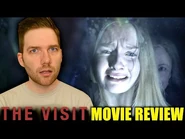

References [ ]
- 1 Civil War
Screen Rant
The visit ending explained: is the m. night shyamalan movie based on a true story.
M. Night Shyamalan's twist-filled 2015 shocker The Visit had audiences guessing until the very end, but is the found footage horror film a true story?
- "The Visit" is a twist-filled thriller that earned its scares through a plausible story and clever use of found footage genre.
- Despite being eerily plausible, "The Visit" is actually a work of pure fiction and not based on a true story.
- The film explores themes of aging, fear, and generational trauma, while also highlighting the importance of forgiveness and reconciliation.
M. Night Shyamalan's twist-filled thriller The Visit kept viewers guessing all the way up to the shocking conclusion, but is the found footage horror hit based on a true story? Released in 2015, The Visit follows teen siblings Becca (Olivia DeJonge) and Tyler (Ed Oxenbould) as they are sent to spend a week with their estranged grandparents. Naturally, strange things are afoot, and the teens must learn the shocking truth about their relatives. As with all of Shyamalan's horror movies, The Visit built up to a shocking twist that many didn't see coming, but it cleverly incorporated humor in a way that left many perplexed by its tone.
Despite a largely mixed critical reaction (via Rotten Tomatoes ), The Visit was a bona fide financial success (via Box Office Mojo ) and it stands as one of M. Night Shyamalan's highest-grossing movies . Unlike many of Shyamalan's other films which incorporate fantastical elements, The Visit earned its scares by being an entirely plausible story. Visually speaking, Shyamalan used the found footage genre deftly to convey a deeper meaning, and he got genuinely creepy moments from what could have easily been goofy. The compelling mix of plausibility and realism had many wondering whether The Visit was actually based on a true story.
Every Character M. Night Shyamalan Played In His Own Movies
The visit is not based on a true story.
Despite being eerily plausible, The Visit was actually a work of pure fiction and had no connection to real life. The script was penned by M. Night Shyamalan himself, with many of the movie's more positive reviews calling it a return to his former glory. Nearly all the writer/director's films have been works of his own imagination and in an interview with Geeks of Doom he said " That is the primal thing of it, that we are scared of getting old. Playing on that is a powerful conceit ". The director would return to that theme a few years later in 2021's Old but to a less effective extent.
The Grandparents Twist Explained
Throughout the film, Becca and Tyler are unsure about the behavior of their Pop Pop (Peter McRobbie) and Nana (Deana Dunagan), who have seemingly grown worse as the story progresses. Obviously, something wasn't right about the elderly couple, but the pieces finally clicked when Becca discovered the remains of her real grandparents stashed away in the basement. It is revealed that Pop Pop and Nana are actually escaped patients from the local mental health facility and that they have killed Becca and Tyler's grandparents to assume their lives. It is unclear whether the two escapees would have posed a threat to the kids if they hadn't nosed around.
If there is one thing that the multi-talented Shyamalan is best known for it is his films' abundant use of shocking twists towards the end of his stories. Nearly every M. Night Shyamalan twist has kept audiences guessing, and The Visit was unique because it truly earned its shocking climax. Unlike earlier films which stuck a twist in just to fulfill the obligation, The Visit naturally built towards the twist, and it was a crucial part of the plot, unlike so many throw-away gimmick twists of the past.
Why The Visit Is A Found Footage Movie
Thanks to blockbuster horror hits like Paranormal Activity , the found footage genre started to expand in earnest at the beginning of the 2010s. However, by 2015 and the release of The Visit , the style had largely fallen out of favor. Despite this downturn in popularity, The Visit nevertheless opted for an approach that innovated the found footage tropes by injecting a bit of humor and eschewing the self-serious tone. From a story perspective, The Visit is a found footage movie because it is about Becca's quest to chronicle her family for a documentary, but the choice actually goes deeper.
Unlike other directors who chose found footage as a cheap way to save on the movie's budget, Shyamalan intellectualized the style by making it crucial to the plot. In the same Geeks of Doom interview, the director mentioned " The camera is an extension of those characters...It is manifesting in literal cinematography in this particular movie ". Additionally, Becca's abundant camera usage actually factors into the plot, such as when she shows the footage to her mother, which further integrates it into the fabric of the film.
The First "Found Footage" Movie Came 38 Years Before The Blair Witch Project
The significance of tyler’s phobias.
Horror movies are all about exploiting common phobias , and The Visit used Tyler's irrational fears as a chance to spook viewers and say something about the themes as well. Tyler is shown to be a bit of a germaphobe, and he also has a fear of freezing to death. While both have rational elements and point back to the omnipresent fear of death from which all phobias stem, Tyler's fears also speak to the idea that the elderly are frightening because they are reminders of death. The slow degradation of the body through aging is a lot like freezing to death, and it is clear that Tyler sees his elderly grandparents as unclean which activates his germ phobia.
The hilariously gruesome scene in which Pop Pop rubs his dirty adult diaper in Tyler's face forces the younger man to confront his fears, and it empowers him later when he finally dispatches the imposter grandpa. It is likely not a coincidence that Tyler kills Pop Pop by slamming his head in the refrigerator, as the ice box is an extension of Tyler's fear of freezing. He literally kills his tormentor with a symbol of the thing that mentally torments him.
How Loretta’s Past Affected The Kids
At the beginning of the film, Becca and Tyler's mom Loretta (Kathryn Hahn) explains that she hasn't spoken to her parents in 15 years because she eloped with one of her high school teachers when she was only a teenager. Instead of facing her problems like an adult, Loretta instead allowed her kids to act as a bridge between the generations, inadvertently sending them to live with two violent escapees from the local mental health ward. Loretta would later reveal that Nana and Pop Pop aren't her parents in one of Shyamalan's most terrifying scares , but she was away on a cruise and couldn't come to their aid.
This forces her kids to mature faster than she ever could, and they go on the offense as they are tasked with escaping from the murderous impostors occupying their grandparent's home. At the end of the film, Loretta explains her last interaction with her parents turned violent, which sheds a bit of light on why she couldn't just face up to the past. In some ways, Loretta's choices as a teenager eventually led to the precarious situation that Becca and Tyler ended up in, and she passed a bit of generational trauma on to them.
Why Becca Puts Her Father In The Documentary
Having survived the harrowing ordeal, Becca's documentary finally begins to take shape at the very end of The Visit . She is given the chance to cut in footage of her estranged father, and though Loretta informs her she doesn't have to, Becca opts to put him in. This choice shows that Becca has matured significantly since the titular visit, and she has come to the realization that forgiveness really is the best path. Loretta could never forgive her parents, and it robbed her of a chance for reconciliation. By putting her dad in the documentary, Becca left that door open for her future self and maybe her own children too.
How Many M. Night Shyamalan Movies REALLY Have Twists
The real meaning of the visit’s ending.
From a horror perspective, the ending of The Visit is all about the fear of death as personified by the elderly. Nana and Pop Pop are terrifying embodiments of the eventual degradation of the body, though they also fill the role of the conventional horror antagonist. However, from a more thematic side, The Visit is also about forgiveness and reconciliation, as the harboring of deep-seated pain can eventually lead to a bad outcome. Even if it isn't literally an encounter with escaped murderers, it is at least a path of nothing but pain and loss.
Literary Theory and Criticism
Home › Drama Criticism › Analysis of Friedrich Dürrenmatt’s The Visit
Analysis of Friedrich Dürrenmatt’s The Visit
By NASRULLAH MAMBROL on September 17, 2020 • ( 0 )
Tragedy presupposes guilt, despair, moderation, lucidity, vision, a sense of responsibility. In the Punch-and-Judy show of our century . . . there are no more guilty and also, no responsible men. It is always, “We couldn’t help it” and “We didn’t really want that to happen.” And indeed, things happen without anyone in particular being responsible for them. Everyone is dragged along and everyone gets caught somewhere in the sweep of events. We are all collectively guilty, collectively bogged down in the sins of our fathers and of our forefathers. . . . That is our misfortune, but not our guilt: guilt can exist only as a personal achievement, as a religious deed. Comedy alone is suitable for us. . . .
But the tragic is still possible even if pure tragedy is not. We can achieve the tragic out of comedy. We can bring it forth as a frightening moment, as an abyss that opens suddenly.
—Friedrich Dürrenmatt, “Problems of the Theatre”
Friedrich Dürrenmatt’s view of the theater as a vehicle for moral revelation and universal relevance is reflected in Der Besuch der alten Dame ( The Visit ), a tragicomedy combining expressionistic devices and elements of Brechtian epic theater with an inspired sense of the shocking and grotesque. At its core the play is a serious exploration of humanity’s dark side in its conviction that economics determines morality, an idea that is found in drama as early as the 1830s, with the opening scene of Georg Büchner’s Woyzeck . In The Visit the tragedy is that an entire community is caught in a sweep of events that leads to a murder by the masses; Dürrenmatt’s genius is to present what is a tragedy of commission into a work of unsettling humor.
In Friedrich Dürrenmatt the attributes of the dissident intellectual coalesced with those of the rural villager, the result of a family situation in which strict Protestant training coexisted with unorthodoxy. Dürrenmatt was born in 1921 in the Swiss village of Konolfi ngen in the canton of Bern, the older of two children of Reinhold and Hulda Zimmerman Dürrenmatt. His father was the Protestant pastor of the town church and his paternal grand father, Ulrich, was an eccentric, who had been active in 19th-century Swiss politics. A fanatically conservative newspaper publisher, Ulrich was proud to have spent 10 days in jail for composing a viciously satiric poem he printed on the front page of the paper. His grandson was also affected by the tales his father told him from classical mythology and the Bible tales recounted by his mother, all of which would later provide material for his works. Dürrenmatt’s first ambition was to become a painter, and while attending secondary school in a nearby village he spent his spare time in the studio of a local painter. He continued to paint and draw as an adult, and his first published plays were accompanied by his illustrations. In 1935 the family relocated to the city of Bern, where Dürrenmatt attended the Frieies Gymnasium, a Christian secondary school. He was adept at classical languages but was otherwise a poor student, and after two and a half years there he was asked to leave. He was then sent to a private school from which he often played hooky. Rejected from the Institute of Art, Dürrenmatt studied at the University of Zurich and the University of Bern, where he tutored in Greek and Latin to earn money. After a stint in the military and a return to the University of Zurich, a bout with hepatitis sent him home to Bern, where he studied philosophy at the university and considered writing a doctoral dissertation on Søren Kierkegaard and tragedy.
Dürrenmatt began his literary career in the early 1940s with fictional sketches and prose fragments, and in 1945 he published a short story echoing the intense style of German writer Ernst Jünger. He failed in his attempt to become a theater critic as well as a cabaret sketch writer, although the latter efforts displayed his gift for social satire. In 1946 he married Lotti Geissler, an actress, and the following year the couple relocated to Basel. His first play, Es steht geschrieben ( Thus It Is Written ), performed in Zurich in 1947, is a parody of Western history in the guise of a panoramic historical drama with Brechtian influences. Set in the 16th century the 30-scene play concerns Anabaptists, their transformation of Münster into a New Jerusalem, and the destruction of the city by a coalition of Catholic and Protestant troops. At once solemn, passionate, prophetic, religious, existential, cynical, and apocalyptic, the play is unwieldy in execution, with a large cast and dialogue ranging from the biblically hymnic to the absurd. It drew boos from its first-night audience; however, reviewers praised Dürrenmatt’s potential, and he was awarded a cash prize from the Welti Foundation as an encouragement to continue writing plays. Twenty years later Dürrenmatt reworked the play as a comedy, Die Wiedertäufer ( The Anabaptists ), which was more stageworthy but failed equally with audiences. A similar fate greeted his second play, Der Blinde (1948; The Blind Man ), considered to be a pretentious, heavy-handed blend of theology and philosophy.
Dürrenmatt’s first theatrical success was Romulus der Grosse ( Romulus the Great ), performed in 1948. It is a Shavian-like tragicomedy, in which the title ruler, personifying deliberate irresponsibility and inaction, accepts that the power and tyranny of Rome must give way to truth and humanity. He refuses to try to halt the barbarian destruction of Rome and ultimately accepts a pension from the German conqueror that will allow for a comfortable retirement. In 1949 Romulus the Great became the first Dürrenmatt play to be performed in Germany, where it became a standard offering in German theater. Nevertheless, Dürrenmatt continued to suffer financially, and to help support his family, which had grown to three children, he turned to writing detective novels, which were a great success, as were his radio plays. The royalties from the latter allowed him to purchase a home near Neuchâtel in 1952, where he lived until his death in 1990. He completed the manuscript for his next play, Die Ehe des Herrn Mississippi ( The Marriage of Mr. Mississippi ), in 1950. A panorama of violence and intrigue, with expressionistic touches, in which the title character destroys himself and everyone around him with his determination to impose absolute Mosaic justice, the play was rejected by Swiss theaters but was produced in 1952 at the Intimate Theatre in Munich and established Dürrenmatt as an avant-garde dramatist. Ein Engel kommt nach Babylon ( An Angel Comes to Babylon ), also produced at the Intimate Theatre in 1952, is a satire of power and bureaucracy that validates, through the hero, the beggar-artist Akki, the values of innocence and ingenuity over institutional power and corruption.’

https://viennaoperareview.com/
The philosophical, theological, and social themes that Dürrenmatt explored in his previous plays are highly developed, straightforward, and sardonically and grotesquely amusing in The Visit , first performed in Zurich in 1956 and from then on a mainstay of Western theater. The Visit is set in Guellen, a small town somewhere in German-speaking central Europe. The once-prosperous Guellen, where “Goethe spent a night” and “Brahms composed a quartet,” has decayed in recent years to the point where it is almost completely impoverished (the name in German translates to “liquid manure”). The Visit begins and concludes with a parody of a chorus like that of a Greek tragedy, which serves to give the play a classical symmetry, that heightens its sense of irony. The first act opens at the ramshackle railroad station, where four unemployed citizens sit on a bench and interest themselves in “our last remaining pleasure: watching trains go by,” as they recite a litany of woes:
Man three: Ruined.
Man four: The Wagner Factory gone crash.
Man one: Bockmann bankrupt.
Man two: The Foundry on Sunshine Square shut down.
Man three: Living on the dole.
Man four: On Poor Relief Soup.
Man one: Living?
Man two: Vegetating.
Man three: And rotting to death.
Man four: The entire township.
This chorus of men, together with Guellen’s mayor, schoolmaster, priest, and shopkeeper, gather to meet a train and greet its famous passenger, Claire Zachanassian (née Wascher), daughter of Guellen’s builder, who is visiting her hometown after 45 years. Now 63, she is the richest woman in the world, the widow of the world’s richest man, and the owner of nearly everything, including the railways. She has founded hospitals, soup kitchens, and kindergartens, and the Guelleners plan to ask her to invest in their town:
Mayor: Gentlemen, the millionairess is our only hope.
Priest: Apart from God.
Mayor: Apart from God.
Schoolmaster: But God won’t pay.
The mayor appeals to the shopkeeper, Alfred Ill (sometimes translated as Anton Schill), who was once Claire’s lover, to charm her into generosity. For his part Ill knows that if she were to make the expected financial gift, he will be victorious in the next mayoral contest. Madame Zachanassian arrives. She is a grande dame , graceful, refined, with a casual, ironic manner. She is accompanied by an unusual retinue: a butler, two gum-chewing thugs who carry her about on a sedan chair, a pair of blind eunuchs (who, as Dürrenmatt states in his postscript to the play, can either repeat each other’s lines or speak their dialogue together), her seventh husband, a black panther, and an empty coffin. When Claire and Ill greet each other, Ill calls her, as he used to, “my little wildcat” and “my little sorceress.” This sets her, as Dürrenmatt’s stage notes indicate, purring “like an old cat.” Eventually, the two leave the fulsome (and transparently false) cordiality of the town behind to meet in their old trysting places. In Konrad’s Village Woods, the four citizens from the first scene play trees, plants, wildlife, the wind, and “bygone dreams,” as Ill tries to win Claire over. When he kisses her hand, he learns that it is made of ivory; most of her body is made of artificial parts. Nevertheless, he is convinced that he has beguiled her into making the bequest. At a banquet in her honor that evening Claire sarcastically contradicts the overly flattering testimonial offered by the mayor of her unselfish behavior as a child, but declares that, “as my contribution to this joy of yours,” she proposes to give 1 million pounds to the town. There is, however, one condition: Someone must kill Alfred Ill. For her 1 million, Claire maintains, she is buying justice: Forty-five years earlier she brought a paternity suit against Ill, who bribed two witnesses to testify against her. As a result she was forced to leave Guellen in shame and to become a prostitute in Hamburg. The child, a girl, died. The two witnesses are the eunuchs, whom Claire tracked down, blinded, castrated, and added to her entourage. The butler was the magistrate in the case. The mayor indignantly rejects the offer “in the name of humanity. We would rather have poverty than blood on our hands.” Claire’s response: “I’ll wait.”
The second and third acts chronicle the decline of Guellen into temptation, moral ambiguity and complicity. In the weeks that follow the banquet, Madame Zachanassian, who, it is revealed, intentionally caused Guellen’s financial ruin, watches with grim satisfaction as the insidiousness of her proposal manifests itself in the town’s behavior. She also marries three more times; husband number eight is a famous film star, played by the same actor as husband number seven. At first gratified by the town’s loyalty to him, Ill becomes increasingly uneasy when the Guelleners, including his family, begin to buy expensive items on credit, even from his own store, and there comes into being the kind of night life and social activities found in a more prosperous town. Guelleners are clearly expecting their financial positions to change, and with this expectation comes a withdrawing of support for Ill and collective outrage for his crime of long ago. Claire’s black panther, who symbolizes Ill, is shot and killed in front of Ill’s store. Fearing for his life Ill tries to leave town on the next train but is surrounded on all sides by Guelleners. The citizens insist they are just there to wish him luck on his journey, but a terrified Ill is convinced they will kill him if he tries to board the train. He faints as the train leaves without him. The play reaches a crescendo, with the finale becoming a grand media event, when reporters and broadcasters arrive. Ill faces up to his guilt and publicly—and heroically—accepts responsibility for his crime and the judgment of the town, despite the support of the schoolmaster, the only citizen who attempts to question Guellen’s willingness to abdicate its responsibility as “a just community.” Ill is murdered by the crowd. The death is ruled a heart attack; the mayor claims Ill “died of joy,” a sentiment echoed by reporters. The mayor receives the check for 1 million, and Claire Zachanassian leaves with Ill’s body; the coffin now has its corpse. A citizen chorus descries “the plight” of poverty and praises God that “kindly fate” has intervened to provide them with such advantages as better cars, frocks, cigarettes, and commuter trains. All pray to God to “Protect all our sacred possessions, / Protect our peace and our freedom, / Ward off the night, nevermore / Let it darken our glorious town / Grown out of the ashes anew. / Let us go and enjoy our good fortune.”
In his postscript Dürrenmatt makes clear that “Claire Zachanassian represents neither justice . . . nor the Apocalypse; let her be only what she is: the richest woman in the world, whose fortune has put her in a position to act like the heroine of a Greek tragedy: absolute, cruel, something like Medea.” Guellen is the main character and Alfred Ill its scapegoat, ritually murdered so that the community can, at the same time, purge itself and justifiably accept a portion of Claire Zachanassian’s bounty. They are not wicked, claims Dürrenmatt, but, tragically, “people like the rest of us,” concerned with sin, suffering, guilt, and the pursuit of justice and redemption in an ostensibly alien and indifferent universe.
Source: Daniel S. Burt The Drama 100 A Ranking of the Greatest Plays of All Time
Share this:
Categories: Drama Criticism , Literature
Tags: Analysis of Friedrich Dürrenmatt’s The Visit , bibliography of Friedrich Dürrenmatt’s The Visit , criticism of Friedrich Dürrenmatt’s The Visit , Epic Theatre , Essays of Friedrich Dürrenmatt’s The Visit , Friedrich Dürrenmatt , Friedrich Dürrenmatt and Epic Theatre , interpretation of Friedrich Dürrenmatt’s The Visit , Literary Criticism , notes of Friedrich Dürrenmatt’s The Visit , plot of Friedrich Dürrenmatt’s The Visit , study guide of Friedrich Dürrenmatt’s The Visit , Summary of Friedrich Dürrenmatt’s The Visit , The Visit analysis , The Visit essay , The Visit notes , The Visit plot , The Visit story , The Visit summary , Theatre Studies , Themes of Friedrich Dürrenmatt’s The Visit
Related Articles

Leave a Reply Cancel reply
You must be logged in to post a comment.

50 pages • 1 hour read
A modern alternative to SparkNotes and CliffsNotes, SuperSummary offers high-quality Study Guides with detailed chapter summaries and analysis of major themes, characters, and more.
Act Summaries & Analyses
Character Analysis
Symbols & Motifs
Important Quotes
Essay Topics
Discussion Questions
Summary and Study Guide
The Visit , by Swiss author and playwright Friedrich Dürrenmatt, premiered in 1956 at the Schauspielhaus Zürich under the German title Der Besuch der alten Dame , or The Visit of the Old Lady . Dürrenmatt’s darkly comic satiric plays are credited with helping revitalize German theatre following World War II. His writing also reveals the influence of German playwright Bertolt Brecht, notably in Dürrenmatt’s use of parables: simple stories using human characters to illustrate a lesson or moral. One of the themes Dürrenmatt explores in The Visit is the corrupting power of money.
The play, a tragicomedy in three acts, is Dürrenmatt’s most well-known and enduring work as a dramatist. The hugely successful 1958 Broadway debut starred the famous acting married couple Alfred Lunt and Lynn Fontanne and was staged by famous English director Peter Brooks. The play has been widely adapted, as a 1964 Hollywood film, a 1971 German opera, a 1992 Senegalese film Hyenas , a 2001 musical by John Kander and Fred Ebb, and a 2020 version by American playwright Tony Kushner that ran in London.
Get access to this full Study Guide and much more!
- 7,500+ In-Depth Study Guides
- 4,900+ Quick-Read Plot Summaries
- Downloadable PDFs
This guide references the translation by Patrick Bowles published by Grove Press in 1990.
Plot Summary
The SuperSummary difference
- 8x more resources than SparkNotes and CliffsNotes combined
- Study Guides you won ' t find anywhere else
- 100+ new titles every month
The fictional small town of Guellen , located vaguely in central Europe, has fallen into poverty since the end of World War II. But fortunately for its inhabitants, famous multimillionaire Claire Zachanassian grew up in Guellen and is returning for a visit after 45 years. In hopes that Claire will share her wealth to save the town, the Mayor has planned a grand welcome. Alfred Ill , who is the most well-liked man in town and slated to become the next mayor, happens to be Claire’s long-ago lover. He is also the only person in town who knows and remembers her at all, and his help is enlisted to sweet-talk Claire into giving the town money. Claire upsets their preparations by arriving early, her seventh husband and a strange entourage in tow. She also brings, along with mountains of luggage, a coffin. Claire goes with Ill to some of the places where they trysted. She confronts Ill for ending their relationship to marry Matilda Blumhard, whose family had money and owned the town General Store. Because of Ill’s actions, Claire left Guellen and ended up working in a brothel until her first husband, a billionaire, married her. Ill claims that he did it to save Claire from staying in Guellen. Claire tells Ill that she will give the town money, and Ill excitedly accompanies her into town for a reception in her honor. After the Mayor gives an erroneous speech about her, Claire announces that she will donate a million pounds to Guellen, half of which will go to the town and the other half to be divided among the townspeople. But she has a condition, which they quiet their cheering to hear.
Claire’s butler comes forward, introducing himself as Guellen’s one-time Lord Chief Justice. Once, he arbitrated a paternity case. Claire, who was 17, was pregnant and named Ill, who was 20, as the father. But Ill paid two men to claim that they slept with her. Claire left Guellen in disgrace. The baby was taken away and died after a year. To survive, Claire was forced into sex work. She has had the two men who lied blinded and castrated, now a part of her entourage, and she wants to buy justice against Ill. She’ll give the money in exchange for someone killing Ill. The Mayor immediately rejects the offer as inhuman, but Claire says that she will wait.
Act II begins in Ill’s store, where townspeople are buying things on store credit. Although they all tell Ill that they stand with him, Ill suddenly realizes that everyone is spending extravagantly on credit, because they know that someone will follow through to get Claire’s money. Recognizing that he is being threatened, Ill goes to the Policeman , the Mayor, and then the Priest , begging each of them to help him. But they all demonstrate that they are spending money too. Terrified, Ill goes to the train station, followed by the entire town. Afraid that someone will grab him, Ill misses the train and collapses in panic. The townspeople walk away, leaving him there. In Act III, the Doctor and the Schoolmaster go to see Claire, who has just married and divorced another husband, to ask if she will invest in the town instead of giving a gift. But Claire reveals that she already owns everything in the town. She shut down the factories to create the rampant poverty.
At Ill’s store, his wife is helping customers who are still upgrading their purchases and buying on credit. Some men from town come in and decide to sit and make sure that Ill doesn’t decide to talk to the press that came to town for Claire’s wedding. The Schoolmaster, who has started drinking, nearly speaks up when reporters come into the store, but Ill, who has been hiding upstairs, stops him. After the reporters and townspeople leave, Ill comments that his family has also been buying on credit, including his son’s new car. He surprises his family by telling them to dress up to go for a drive. The Mayor comes in and tells Ill that there will be a town meeting and a vote about accepting Claire’s offer. He tries to give Ill a gun to save the town the trouble by killing himself, but Ill refuses, although he agrees to abide by the results of the vote. His family returns, and after a pleasant ride, Ill says goodbye and goes to the woods where Claire is supposed to be walking with her new husband. Ill and Claire talk about the end of their relationship and their daughter who died. Claire promises to take Ill in the coffin to a mausoleum in Capri, so he will be near her forever. Ill goes to the town meeting. The press is present, so the Mayor and Schoolmaster speak vaguely, but they finally hold a vote. Only Ill votes against taking the money. After the press leaves, the men of the town strangle Ill. The Mayor tells an errant reporter that Ill died of a heart attack from happiness. Claire gives the Mayor the check and has Ill’s body carried out and placed in the coffin. As Claire and her luggage, along with the coffin, head to the train station, the townspeople sing her praises and pray for their own good fortune.

Don't Miss Out!
Access Study Guide Now
Related Titles
By Friedrich Dürrenmatt

The Physicists
Friedrich Dürrenmatt
Featured Collections
Books on Justice & Injustice
View Collection
Challenging Authority
Comedies & Satirical Plays
Popular Study Guides
School Book List Titles
Tragic Plays
Truth & Lies

Friedrich Dürrenmatt
Ask litcharts ai: the answer to your questions.
- PRO Courses Guides New Tech Help Pro Expert Videos About wikiHow Pro Upgrade Sign In
- EDIT Edit this Article
- EXPLORE Tech Help Pro About Us Random Article Quizzes Request a New Article Community Dashboard This Or That Game Popular Categories Arts and Entertainment Artwork Books Movies Computers and Electronics Computers Phone Skills Technology Hacks Health Men's Health Mental Health Women's Health Relationships Dating Love Relationship Issues Hobbies and Crafts Crafts Drawing Games Education & Communication Communication Skills Personal Development Studying Personal Care and Style Fashion Hair Care Personal Hygiene Youth Personal Care School Stuff Dating All Categories Arts and Entertainment Finance and Business Home and Garden Relationship Quizzes Cars & Other Vehicles Food and Entertaining Personal Care and Style Sports and Fitness Computers and Electronics Health Pets and Animals Travel Education & Communication Hobbies and Crafts Philosophy and Religion Work World Family Life Holidays and Traditions Relationships Youth
- Browse Articles
- Learn Something New
- Quizzes Hot
- This Or That Game New
- Train Your Brain
- Explore More
- Support wikiHow
- About wikiHow
- Log in / Sign up
- Education and Communications
- Official Writing
- Report Writing
How to Write a Visit Report
Last Updated: March 30, 2024 References
This article was co-authored by Madison Boehm . Madison Boehm is a Business Advisor and the Co-Founder of Jaxson Maximus, a men’s salon and custom clothiers based in southern Florida. She specializes in business development, operations, and finance. Additionally, she has experience in the salon, clothing, and retail sectors. Madison holds a BBA in Entrepreneurship and Marketing from The University of Houston. This article has been viewed 653,161 times.
Whether you’re a student or a professional, a visit report helps you document the procedures and processes at an industrial or corporate location. These reports are fairly straightforward. Describe the site first and explain what you did while you were there. If required, reflect on what you learned during your visit. No additional research or information is needed.
Writing a Visit Report
Explain the site's purpose, operations, and what happened during the visit. Identify the site's strengths and weaknesses, along with your recommendations for improvement. Include relevant photos or diagrams to supplement your report.
Describing the Site

- Reports are usually only 2-3 pages long, but in some cases, these reports may be much longer.
- In some cases, you may be asked to give recommendations or opinions about the site. In other cases, you will be asked only to describe the site.
- Ask your boss or instructor for models of other visit reports. If you can't get a model, look up samples online.

- If you visited a factory, explain what it is producing and what equipment it uses.
- If you visited a construction site, describe what is being constructed and how far along the construction is. You should also describe the terrain of the site and the layout.
- If you’re visiting a business, describe what the business does. State which department or part of the business you visited.
- If you’re visiting a school, identify which grades they teach. Note how many students attend the school. Name the teachers whose classes you observed.

- Who did you talk to? What did they tell you?
- What did you see at the site?
- What events took place? Did you attend a seminar, Q&A session, or interview?
- Did you see any demonstrations of equipment or techniques?

- For example, at a car factory, describe whether the cars are made by robots or humans. Describe each step of the assembly line.
- If you're visiting a business, talk about different departments within the business. Describe their corporate structure and identify what programs they use to conduct their business.
Reflecting on Your Visit

- Is there something you didn’t realize before that you learned while at the site?
- Who at the site provided helpful information?
- What was your favorite part of the visit and why?

- For example, you might state that the factory uses the latest technology but point out that employees need more training to work with the new equipment.
- If there was anything important left out of the visit, state what it was. For example, maybe you were hoping to see the main factory floor or to talk to the manager.

- Tailor your recommendations to the organization or institution that owns the site. What is practical and reasonable for them to do to improve their site?
- Be specific. Don’t just say they need to improve infrastructure. State what type of equipment they need or give advice on how to improve employee morale.
Formatting Your Report

- If you are following a certain style guideline, like APA or Chicago style, make sure to format the title page according to the rules of the handbook.

- Don’t just say “the visit was interesting” or “I was bored.” Be specific when describing what you learned or saw.

Sample Visit Report

Community Q&A
You Might Also Like

- ↑ http://services.unimelb.edu.au/__data/assets/pdf_file/0010/471286/Site_Reports_for_Engineers_Update_051112.pdf
- ↑ https://www.examples.com/business/visit-report.html
- ↑ https://www.thepensters.com/blog/industrial-visit-report-writing/
- ↑ https://eclass.aueb.gr/modules/document/file.php/ME342/Report%20Drafting.pdf
About This Article

To write a visit report, start by including a general introduction that tells your audience where and when you visited, who your contact was, and how you got there. Once you have the introduction written out, take 1 to 2 paragraphs to describe the purpose of the site you visited, including details like the size and layout. If you visited a business, talk about what the business does and describe any specific departments you went to. Then, summarize what happened during your visit in chronological order. Make sure to include people you met and what they told you. Toward the end of your report, reflect on your visit by identifying any strengths and weaknesses in how the site operates and provide any recommendations for improvement. For more help, including how to format your report, read on! Did this summary help you? Yes No
- Send fan mail to authors
Reader Success Stories
Betty Tarutia
Jul 9, 2020
Did this article help you?

Jayani Rathnayake
Aug 6, 2019
Jun 13, 2019
Atremedaki Phawa
Aug 19, 2019

Featured Articles

Trending Articles

Watch Articles

- Terms of Use
- Privacy Policy
- Do Not Sell or Share My Info
- Not Selling Info
wikiHow Tech Help Pro:
Level up your tech skills and stay ahead of the curve

Join StageAgent today and unlock amazing theatre resources and opportunities.
The Band's Visit

Writers: Itamar Moses David Yazbek
- Related Products
- Useful Articles
Show Information
It is 1996, and through an error in pronunciation, the Alexandria Ceremonial Police Orchestra is stranded in the isolated desert town of Bet Havitka, Israel (rather than the city Petah Tikva, their actual destination). Without knowing the language and with very little money, the band members - led by conductor Tewfiq Zakaria - are welcomed by the locals, including cafe owner Dina and her two employees, Papi and Itzik. During this one night in a sleepy town where nothing much changes, the Egyptian band members and their Israeli hosts communicate in English (their only common language) and find their mutual love of music, whether traditional Middle Eastern ballads or American jazz and Chet Baker. Winner of ten Tony Awards and a score based in traditional middle eastern styles (with musicians planted all around the stage), The Band’s Visit appeals to the universal romance and passion people find in music, no matter where they are from.
Lead Characters
Tewfiq zakaria, the band's visit - musical.
View All Characters in The Band's Visit
- Guide written by
- Cindi Calhoun
The Band's Visit guide sections
Sign up today to unlock amazing theatre resources and opportunities.
Auditions & Jobs

Simonas Search - Submit for NYC Appointments New York, NY
New York, NY
Next Fall New York, NY
Soft Power (role of Zoe Samuels/Hillary Clinton) New York, NY
Oops! This page is only accessible by StageAgent Pro members.
Take your performing arts career to the next level.
Gain full access to show guides, character breakdowns, auditions, monologues and more!
or log in to your account
You need a Pro account to access this feature.
UPGRADE TO PRO
or or log in to your account
- The Band's Visit Summary
by Itamar Moses , David Yazbek
These notes were contributed by members of the GradeSaver community. We are thankful for their contributions and encourage you to make your own.
Written by Polly Barbour
The year is 1996; the Alexandria Ceremonial Police Orchestra are waiting at the central bus station in Tel Aviv. Their band leader is a quiet and thoughtful man. He recognizes that his young subordinate officer is a different man entirely; adventurous, bold and anxious to get moving, so he asks Haled to purchase the bus tickets for their group. He goes to the ticket window and asks the clerk for tickets to Petah Tikvah, a relatively large city. However, his accent is thick and hard to understand; the clerk thinks he has asked for tickets for the isolated town of Bet Hatikva.
In Bet Hatikva, the residents are bored stiff, and have nothing to do. ("Waiting".) This is why the arrival of bus load of musicians causes something of a stir. Two of the members ask for directions to the Arab Cultural Center, where they are scheduled to perform the next day. This causes confusion and suspicion - who are these strangers asking for places that do not exist? They ask to speak to cafe owner Dina , a sharp and intelligent woman who quickly realizes that not only are the group lost, but that they have no idea that they are lost. She realizes that they believe themselves to be in Petah Tikvah. (Welcome To Nowhere). She tells them that they must have boarded the wrong bus. One of the band members asks to use a phone, but there is only one phone in town, and nobody ever gets to use it because it is hogged by a man who waits next to it every night for his girlfriend to call. She hasn't called for several months but this has not stopped him waiting, and guarding the phone from all comers.
Dina invites the men to eat at the cafe and also offers accommodation, which they reluctantly agree to, since their options are extremely limited. Tewfiq hangs out in Dina's kitchen with her, asking casual questions in an attempt to get to know her a little bit. She tells him she was married once ("It Is What It Is") but it didn't work out. Sometimes life doesn't work out as planned.
Another man, Itzik , invites a band member called Simon into his home, to stay with him and his wife and baby; his father-in-lawt lives there as well. Simon makes small talk; he asks what happened to Avrum 's wife. Avrum tells him that music was the foundation upon which their life together was built. They had met in a music club. ("The Beat Of Your Heart") Throughout the touching story, Itzik's wife remains silent, chewing steadfastly.
That night is the most interesting that the people of the town have experienced in a long while; the band members all make plans to go out. Dina asks Tewfiq to join her for dinner. She reminisces about the music she used to listen to on Egyptian radio. This is unexpected to Tewfiq, who was a little reluctant to accept her invitation. They begin to bond over shared memories.
Papi has gone on a date with the object of his affections, but has terrible anxiety about the date, so at the last minute asks Haled to go with them. They decide to hit the roller rink. Papi ignores the girl all night and admits that romance in general makes him anxious ("Papi Hears The Ocean") Haled tries to boost his confidence and he does such a good job of it that Papi talks to the girl in question, successfully ("Haled's Song About Love")
Dina takes Tewfiq to the park after their dinner. Tewfiq is socially awkward, and quiet, because he has a stutter, but when she asks him to sing, his stutter disappears. (It'gara) Dina doesn't understand what he is singing, but is hypnotized by his song. She starts to believe that the bus didn't really come to the wrong place at all; rather, that it was meant to come to her little town so that she and Tewfiq could meet ("Something Different")
Itzik sings his son a lullaby ("Itzik's Lullaby") His wife is turned off by this and finds him ineffectual. She leaves, which concerns Simon until Itzik tells him that this happens periodically. She always comes back. He is right; she returns just in time to hear her son crying, but he is soothed by a tune played by Simon on his clarinet. The power of the music calms Itzak's wife as well and they make up. Simon finishes his tune and goes to bed.
Dina probes more into Tewfiq's life back home. He confides that he and his son never got along. It was probably why his son committed suicide and this has been an enormous source of guilt for him. His wife killed herself because of her grief over hr sone's death. Haled arrives as he is getting more uncomfortable, and tells him that the bus will arrive in the morning to take them to their intended destination. Tewfiq leaves to go to bed, and Dina sings about the nature of their relationship ("Something Different *reprise*") and this makes her feel more romantic. She kisses Haled when he pays her a compliment.
In the morning, the band gathers by Dina's cafe, as planned, to pick up the bus. Concerned that geography is not Tewfiq's strong suit Dina gives him a piece of paper with the name of their destination written on it. Later that day the band arrive successfully in Petah Tikvah, where they are due to play their concert. As Tewfiq raises his conductor's baton, and the lights go out on the stage.
Update this section!
You can help us out by revising, improving and updating this section.
After you claim a section you’ll have 24 hours to send in a draft. An editor will review the submission and either publish your submission or provide feedback.

The Band’s Visit Questions and Answers
The Question and Answer section for The Band’s Visit is a great resource to ask questions, find answers, and discuss the novel.
Study Guide for The Band’s Visit
The Band's Visit study guide contains a biography of Itamar Moses, literature essays, quiz questions, major themes, characters, and a full summary and analysis.
- About The Band's Visit
- Character List
Wikipedia Entries for The Band’s Visit
- Introduction
- Stage adaptation
- Cast & crew
- User reviews
Challengers

Tashi, a former tennis prodigy turned coach, turned her husband into a champion. But to overcome a losing streak, he needs to face his ex-best friend and Tashi's ex-boyfriend. Tashi, a former tennis prodigy turned coach, turned her husband into a champion. But to overcome a losing streak, he needs to face his ex-best friend and Tashi's ex-boyfriend. Tashi, a former tennis prodigy turned coach, turned her husband into a champion. But to overcome a losing streak, he needs to face his ex-best friend and Tashi's ex-boyfriend.
- Luca Guadagnino
- Justin Kuritzkes
- Josh O'Connor
- 58 User reviews
- 128 Critic reviews
- 85 Metascore
- 1 nomination

- Tashi Donaldson

- Art Donaldson

- Patrick Zweig
- Umpire (New Rochelle Final)

- Art's Physiotherapist

- Art's Security Guard
- (as a different name)
- Tashi's Mother
- Line Judge (New Rochelle Final)
- TV Sports Commentator (Atlanta 2019)

- Leo Du Marier

- Woman With Headset (Atlanta 2019)

- Motel Front Desk Clerk
- Motel Husband

- New Rochelle Parking Lot Guard
- USTA Official …
- All cast & crew
- Production, box office & more at IMDbPro
Taking On "Challengers"
More like this.

Did you know
- Trivia To prepare for her role, Zendaya spent three months with pro tennis player-turned-coach, Brad Gilbert .
Tashi Donaldson : I'm taking such good care of my little white boys.
- Connections Referenced in OWV Updates: The Seventh OWV Awards - Last Update of 2022 (2022)
User reviews 58
- davidfilippelli
- Apr 24, 2024
- When will Challengers be released? Powered by Alexa
- April 26, 2024 (United States)
- United States
- Official Site
- Những Kẻ Thách Đấu
- Boston, Massachusetts, USA
- Metro-Goldwyn-Mayer (MGM)
- Pascal Pictures
- See more company credits at IMDbPro
Technical specs
- Runtime 2 hours 11 minutes
- Dolby Digital
- Dolby Atmos
Related news
Contribute to this page.

- See more gaps
- Learn more about contributing
More to explore

Recently viewed
- International

Trump's hush money trial

University protests
Day 8 of Trump New York hush money trial
By CNN's Kara Scannell, Lauren Del Valle and Jeremy Herb in the courthouse
Key takeaways from Donald Trump's hush money trial on Friday
Jurors will now have a three-day weekend to think about what they heard during the first full week of testimony in the historic Donald Trump hush money trial .
David Pecker finally stepped down from the witness stand after more than 10 hours of testimony across four days, where the former American Media Inc. chief described in detail how he helped Donald Trump suppress negative stories and pummel Trump’s rivals in the National Enquirer during the 2016 campaign.
On Friday afternoon, prosecutors called Rhona Graff, who was Trump’s assistant at the Trump Organization, where she worked for more than 30 years. She was quickly off the stand, and a banker for Cohen came next – signaling a move in the trial toward the documents at the heart of the charges against Trump.
Here are the key takeaways from Friday:
- Jury sees paper trail: The hush money case against Trump weaves a colorful narrative, but Trump is charged with 34 counts of falsifying business records — so prosecutors have warned this will in many ways be a routine, document-heavy trial . Friday afternoon prosecutors called a banker from First Republic Bank as their third witness where jurors saw the paper trail for a shell company and corresponding bank account Michael Cohen created in Delaware that was meant to be used to pay AMI for the rights to Karen McDougal’s story.
- Trump lawyer tries to puncture Pecker’s credibility: Prosecutors elicited testimony from the AMI chief about how Pecker’s 2015 deal with Trump was unique, helping him be the “eyes and ears” of the campaign. But in Pecker’s final day on the stand, Trump’s attorneys sought to undercut his testimony with a series of alleged inconsistencies, poking holes in discrepancies from prior interviews with federal and state prosecutors and disputing his testimony that AMI admitted it violated campaign finance law.
- Prosecutors try to re-establish Pecker’s credibility: Prosecutors responded during redirect to reestablish Pecker’s credibility in his answers, showing how his story was consistent and that AMI did admit to campaign finance violations. The points were small in the grand scheme of Pecker’s testimony related to the case, but the fight was really about Pecker’s credibility as a witness. That’s key to the prosecution’s case because he helps tie together the larger hush money scheme – and will be a corroborator of Cohen’s testimony.
- Trump cracks a smile for his longtime assistant: Trump’s longtime assistant Rhona Graff testified for less than an hour. Graff managed Trump’s contacts and calendar for much of her 34 years as his assistant at Trump Tower. Graff’s testimony about her former boss prompted a smile from an otherwise subdued Trump on Friday.
- Defense tries to humanize Trump: Pecker was a longtime friend of Trump dating back to the 1980s, the former AMI chief said on the stand. As his ending question, Bove asked Pecker if he believed Trump cares about his family. He replied, “Of course I do.” Graff no longer works for Trump but she spoke positively about her experience at the Trump Organization and having Trump as a boss. Other coming witnesses, like Cohen and Daniels, will have a far more hostile view of the defendant in this case.
Trump's hush money criminal trial has been on since 2 weeks. Recap what's happened so far
From CNN staff
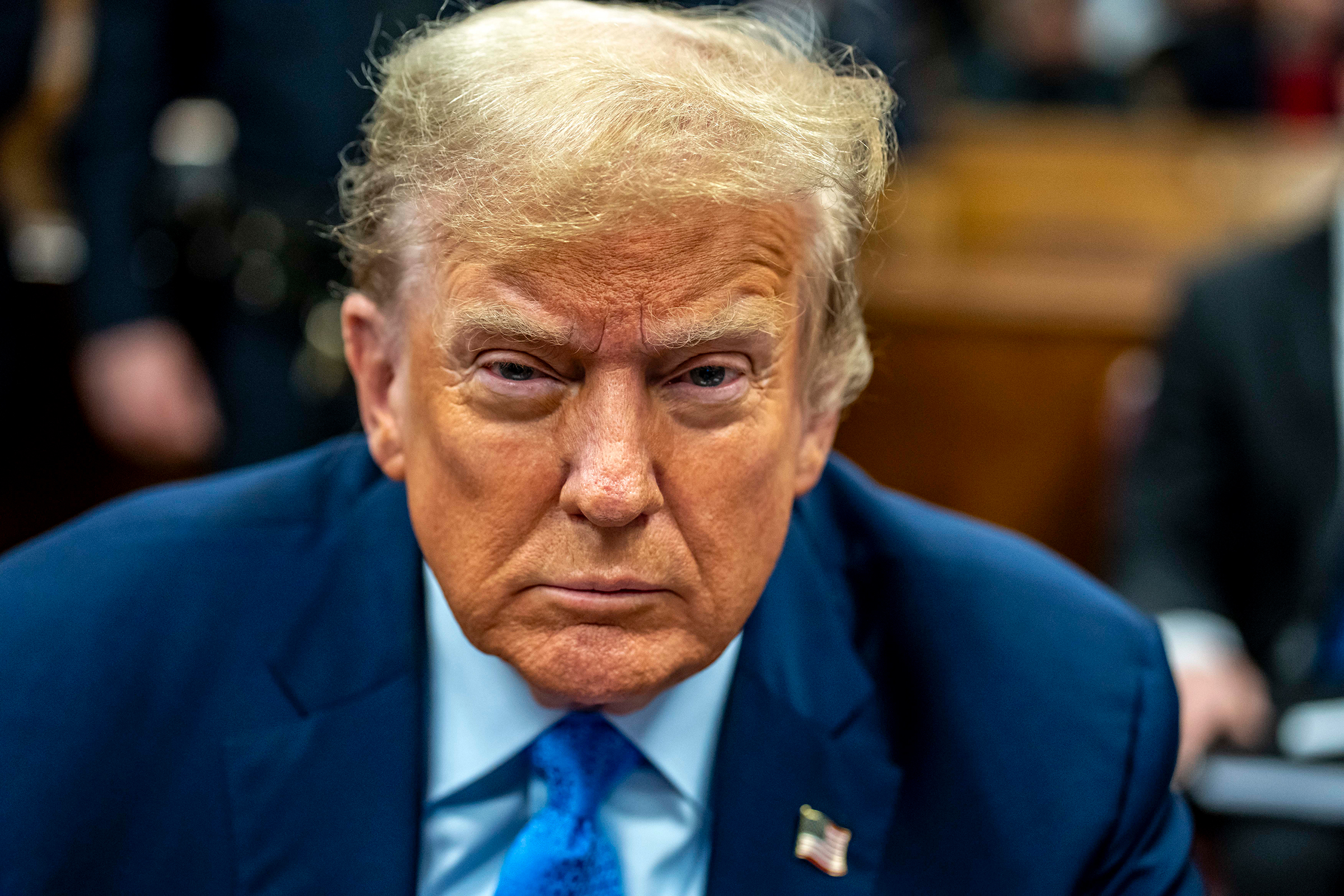
The second week of court proceedings in Donald Trump's historic hush money criminal trial has wrapped.
To refresh your memory, here are the key moments and witnesses from the trial so far:
April 15: Trial began with jury selection
April 19: A panel of 12 jurors and six alternates was selected.
April 22: Prosecution and defense made their opening statements. Former tabloid boss David Pecker was called to testify.
April 23: Judge Juan Merchan held a Sandoval hearing for Trump's alleged gag order violations, but reserved his decision.
April 25: While Trump sat in the Manhattan courtroom, the Supreme Court heard arguments on the matter of his immunity in special counsel Jack Smith's election subversion case against him.
April 26: Pecker's direct questioning and cross-examination concluded. Trump's former longtime assistant Rhona Graff was called to testify briefly. Finally, Michael Cohen's former banker Gary Farro testified.
See courtroom sketches from Trump's trial
No cameras are allowed inside the Manhattan courtroom where Donald Trump’s hush money is underway, but sketch artists are capturing the scenes.
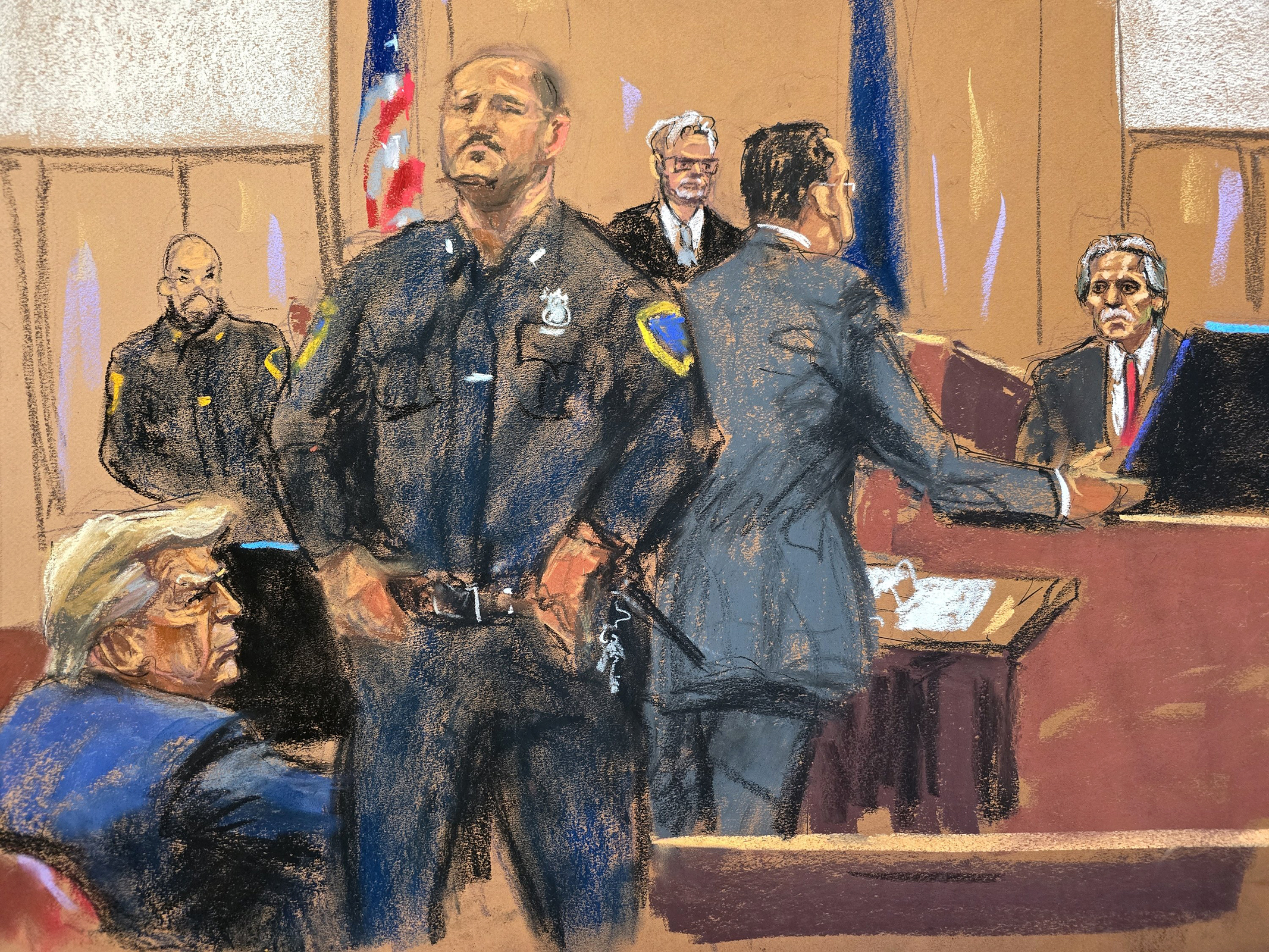
Trump's hush money trial has wrapped up for the week. Here's what happened on Friday
The jury in Donald Trump's hush money trial heard from two new witnesses on Friday after former National Enquirer publisher David Pecker finished his testimony.
Trump’s defense team tried to poke holes in Pecker’s story, pointing out discrepancies and trying to undermine his credibility. Pecker had testified during direct questioning from the prosecution about how he helped broker a deal with Stormy Daniels and arranged to “catch and kill” a story about an alleged affair between Trump and Karen McDougal.
Prosecutors also had the chance to revisit various lines of questions in their redirect before calling Rhona Graff , Trump’s former long-term assistant, to the stand. After that, prosecutors called finance executive Gary Farro .
Farro will continue his testimony on Tuesday. Court is not in session on Monday.
Here’s what happened in court today:
David Pecker
- Trump Tower meeting: Pecker told Trump attorney Emil Bove that the concept of “catch and kill” was not discussed at an August 2015 meeting at Trump Tower . According to Pecker’s previous testimony, that’s when he agreed to be the “eyes and ears” for the Trump campaign and flag negative stories to Michael Cohen.
- Redirect: Pecker said after the 2015 meeting, he and Cohen had an understanding that Pecker was going to use his resources at the Enquirer to flag potentially negative stories to Cohen. He testified that before the 2015 meeting, he did not previously have deals to share positive stories about candidates or agree to run stories attacking Trump’s opponents.
- Stories about Trump’s opponents: During cross-examination, Bove confirmed with Pecker that the Enquirer often recycled content from other outlets about Trump’s opponents. The outlet did that without notifying Trump, Pecker said, and confirmed the stories were based on information that was not exclusive to the Enquirer because it was not cost-efficient.
- McDougal agreement: Pecker agreed that McDougal, who said she had an affair with Trump, was not focused on the payment part of the agreement. Pecker confirmed McDougal wanted to relaunch her career and there were other provisions in the deal . He previously testified that the other elements were intended to “hide” the actual intention of the payment.
- Redirect: The prosecution revisited this point and had Pecker re-confirm that the purpose of the contract with McDougal was to suppress a potentially damaging story about Trump and influence the 2016 election.
- Legal concerns: Pecker said he told Cohen that the agreement with McDougal was legally sound . He said he reviewed the agreement with a campaign attorney and his company’s general counsel.
- Redirect: Pecker said he never spoke directly with the campaign lawyer and he did not tell the AMI general counsel about the arrangement that was struck with Trump during the August 2015 Trump Tower meeting. The prosecution is trying to infer that the lawyers who reviewed the contract did not have the full underlying context of Pecker’s agreement with Trump.
- Stormy Daniels: The former tabloid boss confirmed to the defense that he wanted nothing to do with Daniel’s story and told Cohen that his company AMI would not buy it.
- Redirect: Pecker reiterated that he called Cohen with then-editor-in-chief Dylan Howard encouraging him to buy Daniels’ story .
- FBI interview discrepancy: Pecker testified this week that Trump thanked him for handling stories about McDougal and Trump Tower doorman Dino Sajudin during a January 2017 meeting at Trump Tower. But the defense pointed out that "Trump did not express any gratitude to Pecker and AMI" during his 2018 FBI interview .
- Redirect: Steinglass read notes from an FBI meeting one week after the meeting highlighted by Bove that confirmed that Pecker told the FBI that Trump thanked him.
Rhona Graff
- Answering questions from prosecutor Susan Hoffinger, Graff said she worked for Trump for 34 years at the Trump Organization. She was largely in control of his calendar and in charge of maintaining Trump's contacts.
- She recalled seeing Daniels in the reception area at Trump Tower before Trump ran for president. She later testified to the defense that she assumed Daniels’ visits were to discuss being cast for "The Apprentice." In addition to Daniels, Graff testified she also kept contact information for McDougal .
- During cross-examination, attorney Susan Necheles asked Graff about what it was like working with Trump. She described it as a very “stimulating, exciting, fascinating place to be” and said Trump was a “respectful boss.”
- Farro was previously a senior managing director at First Republic Bank where he worked with Cohen . He said Cohen coordinated with him to set up an account for Resolutions Consultants LLC for the payment to McDougal that never happened. Jurors saw emails between Farro and Cohen.
- Farro testified that his understanding was that Cohen was opening the account for “real estate.” In the paperwork , Cohen described the entity's function to be "management consulting (including HR & marketing).”
- Farro said the Resolution Consultants LLC account was never opened because no deposit was made. Nearly two weeks later, Farro said Cohen told him he wanted to open a new account instead.
- The new account, Essential Consultants LLC , was used to pay Daniels $130,000. On the paperwork, Cohen said this account was for a real estate consulting company.
Gag order: Judge Juan Merchan said there will be a hearing on Thursday morning to discuss possible violations of the gag order against Trump.
Trump hush money criminal trial may see “quite a few somewhat dull witnesses,” expert says
From CNN’s Aditi Sangal
Donald Trump’s hush money criminal trial will see “quite a few somewhat dull witnesses,” said former federal prosecutor Ankush Khardori.
The case is less about the salacious details of Trump's alleged affair with Stormy Daniels — that he denies — and more about the allegations that he covered it up to influence the 2016 presidential election, he points.
“The crime actually has to do with all of this somewhat banal record-keeping stuff. This is a case where I think we’re going to actually see quite a few somewhat dull witnesses producing things like documents, ledgers, invoices, things that just have to come into evidence to complete this case,” he told CNN.
Meanwhile, prosecution and defense also have to be mindful of the approaching weekend.
As a prosecutor, “you like the idea of leaving [the jurors] with something solid, unchallenged, good at the end of the week,” said Trump’s former attorney Jim Trusty.
“They’re basically introducing some paperwork for the jury to look at at 4:30 before they go home, and go, oh there were checks, or there were meetings, or there were contacts.”
It’s also smart for the defense “to keep it dull, to basically not spend any time cross-examining people where you have no real reason to gain anything because they’re not establishing criminality or they’re not establishing controversial points,” he added.
Leaving court, Trump says he'll debate Biden
From CNN's Kaanita Iyer
After exiting the courtroom Friday, former President Donald Trump once again said he would debate President Joe Biden.
"I've invited Biden to debate. He can do it any time he wants, including tonight. I'm ready — here we are. ... I'm here, ready willing and able," Trump said.
Earlier Friday, Biden said in an interview with radio host Howard Stern that he'd be happy to debate Trump .
Judge Merchan says he's calling it a week
Mangold says she's at a natural stopping point and Judge Merchan says, we will "call it a week."
He is now giving the jury instructions.
Trump hit his attorney Todd Blanche on the arm and leaned over to tell him something.
Merchan reminds jurors court is dark on Monday and we are back 9:30 a.m. on Tuesday.
Merchan says, "Have a good weekend, take care."
Farro says Cohen "changed course" once before opening LLC that he used to make Stormy Daniels payment
Farro says the bank "did all of our work to establish" Cohen's original account, but it was never funded.
"A deposit was never made in the account, so the account never went live," Farro says.
Thirteen days later, on October 26, 2016, Farro received another email from his assistant to return Michael Cohen's call, according to the court exhibit.
"He stated he was changing course and no longer wanted to open Resolution Consultants, and wanted to open a new account," Farro says.
"Every time Michael Cohen spoke to me he gave a sense of urgency and this was one of those times."
The new LLC was Essential Consultants LLC, Farro says.
This is the LLC that Cohen used to pay Stormy Daniels the $130,000 payment.
On the form the bank prepared for Cohen to open the account, it stated under "business narrative" that Cohen was opening the account for a real estate consulting company to collect fees for consulting work on real estate deals.
Cohen again checked "No" on a form that asked if the entity is "associated with political fundraising/Political Action Committee (PAC)."
Cohen checked "No" on a form asking if his entity was associated with political fundraising
Cohen checked "No" on a form that asked if the entity, Resolution Consultants LLC, which was created by him as a Delaware entity, is "associated with political fundraising/Political Action Committee (PAC)."
Farro testified several times that his understanding was that Cohen was opening the account for "real estate."
Per the paperwork, Cohen described the entity's function to be "management consulting (including HR & marketing)."
Cohen was the only authorized signatory for the account.
Farro says that the bank "did all of our work to establish" Cohen's account, but it was never funded.
"A deposit was never made in the account so the account never went live," Farro says, confirming the account was not opened.
Please enable JavaScript for a better experience.
Celebrity stories buried and disputes over paying a porn actress: What you missed on Day 7 of Trump's trial
Taking the stand Thursday for now the third day this week, former National Enquirer publisher David Pecker provided testimony to form a road map for New York prosecutors' case against former President Donald Trump.
From detailing business invoice practices to establishing how deeply Trump was involved from beginning to end, lawyers for the Manhattan district attorney's office had Pecker walk the jury through much of the events that occurred leading up to and after the payments to Stormy Daniels to keep quiet about an affair she alleges she had with Trump.
Sprinkled in the testimony were juicy celebrity gossip tidbits and revelations about Trump's repeated inquiries about a Playboy model who also claimed to have had an affair with him.
And after hours of dishing new details, the defense tried Thursday to paint Pecker as suffering from memory lapses and operating for his own motives.
Here's what you missed on Day 7 of Trump's hush money trial:
Pecker lays out the series of events
At the heart of the prosecution's case is the accusation that former Trump lawyer and fixer Michael Cohen paid Daniels to keep quiet about the affair she alleged occurred.
Pecker didn't make those payments. But he did make payments, he says, to other people who were shopping salacious stories about Trump. And, he told the jury, he was communicating with Cohen about the payments to Daniels, including asking Trump to pay Cohen back at Cohen's request.
Much of Pecker's testimony focused on his dealings with Karen McDougal, a Playboy model who said she had a yearlong relationship with Trump.
Pecker testified that he paid McDougal $150,000 — for both the rights to her story, which he never intended to publish, and for her to write pieces for his publications. He did so with assurances from Cohen, he testified, that Trump would pay him back, at least for the $125,000 he estimated the rights to her story were worth.
Pecker was concerned over the legality of deals with Trump
Pecker testified about new public evidence that demonstrated he was concerned about the potential legal liability for paying for stories tied to a political candidate. That's what prompted him and a lawyer to decide not to seek repayment from Trump for the McDougal payment.
He admitted that his company lied to The Wall Street Journal about the agreement with McDougal.
“I wanted to protect my company, I wanted to protect myself, and I wanted to protect Donald Trump,” Pecker said.
Pecker said Trump tried to buy boxes of old research on him the National Enquirer kept
Pecker testified that Trump was fixated on obtaining old boxes of materials and files that the National Enquirer had in its possession. Cohen called “constantly” in September 2016 to request that they be sent to his office, Pecker said, as they were trying to negotiate how Trump would pay for McDougal's story.
At a meeting at Trump Tower in September 2016, Cohen continued to press Pecker about boxes of National Enquirer materials that Pecker brought to New York from Florida.
Cohen told Pecker that Trump was nervous about the records’ and the McDougal story’s remaining in Enquirer control and that if he “got hit by a bus or the company was sold, he did not want someone else to potentially publish those stories.”
'I am not a bank'
In detailing how the payments to McDougal were made, Pecker told the jury that he went to lengths to make sure the rest of the newsroom didn't find out.
Pecker planned to use a company run by a former executive at his company, Investment Advisory Services Inc., to pay a shell corporation that Cohen had established, Resolution Consultants.
“I don’t want to have a check from the Trump Organization going through AMI,” Pecker testified. He said Cohen advised making a flat-fee payment for “advisory services.”
“Because I believe that payment would raise a lot of issues and communicate something to the editors which I did not want to happen,” he said.
Pecker also testified that he was tired of making payments. He said Cohen was “very agitated” as the negotiations dragged on with McDougal and wanted Pecker to pay.
By the time it got to paying Daniels, Pecker said, he put his foot down.
“We already paid $30,000 to the doorman. We paid $150,000 to Karen McDougal, and I am not a bank," he testified. "We are not paying out any further disbursements or monies.”
Trump asked for updates on McDougal
Pecker said Trump was “very upset” about a video of Trump on Radar Online, a website that Pecker's company had acquired, that described Trump as “being a Playboy man.”
The post predated AMI’s acquisition of Radar, and he instructed editor-in-chief Dylan Howard to take it down. It included an audio clip of Trump.
Repeatedly, including after Trump took office, he or his bodyguard asked Pecker how McDougal was doing, referring to her as "our girl."
Pecker testified that at a private meeting in January 2017, he told Trump that McDougal “is writing her articles. She’s quiet. She’s fine.” Trump thanked him “for handling the McDougal situation and the doorman situation.”
Defense worked to sow doubt about Pecker’s memory and motive and prosecutors’ tactics
Trump lawyer Emil Bove conducted cross-examination — at first suggesting that the district attorney’s office had refreshed Pecker’s memories of the events.
“It’s hard to remember exactly what happened almost 10 years ago, right?” Bove asked.
"Yes," Pecker replied.
Bove sought to show that Pecker didn’t tell FBI investigators that Hope Hicks had been in a meeting at Trump Tower in August 2015 — a detail he then testified to do during the trial.
Testifying under cross-examination, Pecker said he learned from prosecutors about the phrase “catch and kill,” which has been used to describe his purchasing McDougal's story with no intention to publish it.
Bove also got Pecker to testify about several other gossip-laden stories about celebrities and politicians he helped kill.
Pecker testified that he helped kill a “Planet Hollywood restaurant story” to aid Ron Perelman, one of his biggest advertisers through Revlon. And he struck an agreement with Arnold Schwarzenegger not to write negative stories about him when he ran for governor of California, he said — in exchange for Schwarzenegger’s blessing for a “giant acquisition.”
Pecker testified that Endeavor CEO Ari Emanuel enlisted his help to suppress potentially negative stories about his brother Rahm Emanuel, who had just ended a stint as the White House chief of staff and was angling for a run for Chicago mayor, and actor Mark Wahlberg. “What Mr. Emanuel wanted was for help with an affair Rahm Emanuel had, right?” Pecker was asked. “Yes,” he said. Rahm Emanuel is now the U.S. ambassador to Japan.
Pecker said he sought to use compromising photographs of golf star Tiger Woods as leverage — getting him to pose for the cover of one of his other magazines.
Jurors' attention appeared to ebb and flow
During Pecker’s testimony about Daniels, who surged to infamy during Trump’s presidency, jurors began taking notes.
But the panel of New Yorkers who are set to judge Trump in the case appeared less interested in Pecker’s account of the bookkeeping for payment to McDougal, whose name is less well-known.
Judge didn't rule whether Trump violated the gag order
The prosecution alleged that Trump had made four new violations in the last three days — including during an early morning stop outside a J.P. Morgan building under construction when Trump issued a warning to Pecker and others, saying, “I have a platform and I will use it.”
“Be nice,” he said.
But Judge Juan Merchan still hasn’t ruled whether Trump violated the order in instances that were previously debated when prosecutors argued Trump “seems to be angling” for incarceration by repeatedly and knowingly breaching it.
Katherine Doyle is a White House reporter for NBC News.

COMMENTS
The Visit is a 2015 American found footage horror film written, co-produced and directed by M. Night Shyamalan and starring Olivia DeJonge, Ed Oxenbould, Deanna Dunagan, Peter McRobbie, and Kathryn Hahn. The film centers around two young siblings, teenage girl Becca (DeJonge) and her younger brother Tyler (Oxenbould) who go to stay with their ...
Synopsis. The film starts with 15-year-old Rebecca 'Becca' (Olivia DeJonge) interviewing her mother, Paula (Kathryn Hahn) for a documentary she's making about meeting her grandparents for the first time. Paula explains that as a teenager, she fell in love with her substitute teacher, and her parents didn't approve.
The Visit follows 15-year-old Becca Jamison (Olivia DeJonge) and her 13-year-old brother Tyler (Ed Oxenbould) when they spend the week with their mother's estranged parents, who live in another ...
With all its terror, "The Visit" is an extremely funny film. There are too many horror cliches to even list ("gotcha" scares, dark basements, frightened children, mysterious sounds at night, no cellphone reception), but the main cliche is that it is a "found footage" film, a style already wrung dry. But Shyamalan injects adrenaline into it, as ...
The Visit is a 2015 horror thriller directed by M. Night Shyamalan. It follows two siblings who visit their estranged grandparents only to discover something is very wrong with them. As the children try to uncover the truth, they are increasingly terrorized by their grandparents' bizarre behaviour. Here's the plot and ending of The Visit ...
The Visit: Directed by M. Night Shyamalan. With Olivia DeJonge, Ed Oxenbould, Deanna Dunagan, Peter McRobbie. Two siblings become increasingly frightened by their grandparents' disturbing behavior while visiting them on vacation.
Rated: 4/5 • Aug 21, 2022. Rated: 2/4 • May 27, 2022. Becca (Olivia DeJonge) and younger brother Tyler (Ed Oxenbould) say goodbye to their mother as they board a train and head deep into ...
Alex Waters (Hill Harper) has been convicted of rape and sentenced to 25 years in prison, although he maintains he is innocent. Alex is up for parole, dying of AIDS and seeking redemption. As a ...
The Visit is written and directed by M. Night Shyamalan. It stars Olivia DeJonge, Ed Oxenbould, Deanna Dunagan, Peter McRobbie and Kathryn Hahn. Becca and Tyler have never met their grandparents, their mother left that family home in acrimonious circumstances. Now the kids are off to spend a few days with them - and get far more than they ...
The Visit M. Night Shyamalan, the writer and director's film is a joy to behold. Filmed through a documentary lens, Shyamalan's to-the-point direction is actually beneficial this time. Some would and does argue to those plot points that grows loud and cheesy which weighs down the film to ever soar perpetually.
The Visit is a 2015 American "found footage" style horror-fantasy written and directed by M. Night Shyamalan, and produced by Shyamalan, Jason Blum, Marc Bienstock, Steven Schneider, and Ashwin Rajan. The film stars Kathryn Hahn, Ed Oxenbould, Peter McRobbie, and Benjamin Kanes. It was released vis Universal Pictures on September 11, 2015. Philadelphia teens, 15-year-old Becca (Olivia DeJonge ...
The Visit Summary. The Visit tells the story of a woman returning to her hometown after forty-five years to exact revenge on the man that betrayed her—or, as she puts it, to "buy justice.". The play opens on a gaggle of unemployed townsmen who sit at a railway station in the fictional Swiss town of Güllen, awaiting the arrival of the ...
Thanks to blockbuster horror hits like Paranormal Activity, the found footage genre started to expand in earnest at the beginning of the 2010s.However, by 2015 and the release of The Visit, the style had largely fallen out of favor.Despite this downturn in popularity, The Visit nevertheless opted for an approach that innovated the found footage tropes by injecting a bit of humor and eschewing ...
The Visit Summary. The story opens with the town of Guellen (which literally means "excrement") preparing for the arrival of famed millionairess Claire Zachanassian. The town is in a state of disrepair, and the residents are suffering considerable hardship and poverty. They hope that Claire, a native of the small town, will provide them with ...
Key Facts about The Visit. Full Title: The Visit (German: Der Besuch der alten Dame ) When Written: 1956. Where Written: Switzerland. When Published: The play was written and produced in 1956. Genre: Dürrenmatt describes the play as a "tragicomedy," a comic response to the tragic nature of life in the wake of WWII.
The philosophical, theological, and social themes that Dürrenmatt explored in his previous plays are highly developed, straightforward, and sardonically and grotesquely amusing in The Visit, first performed in Zurich in 1956 and from then on a mainstay of Western theater.The Visit is set in Guellen, a small town somewhere in German-speaking central Europe.
The Visit, by Swiss author and playwright Friedrich Dürrenmatt, premiered in 1956 at the Schauspielhaus Zürich under the German title Der Besuch der alten Dame, or The Visit of the Old Lady.Dürrenmatt's darkly comic satiric plays are credited with helping revitalize German theatre following World War II. His writing also reveals the influence of German playwright Bertolt Brecht, notably ...
Analysis. The play opens on the fictional Swiss cathedral town of Güllen, literally "liquid excrement" in Swiss German. The name fits: the town is dirty, dilapidated, and, as noted by a chorus of the local unemployed (the First Man, Second Man, Third Man, and Fourth Man ), the town is in the midst of a deep and mysterious economic ...
Synopsis. Claire Zachanassian, the world famous billionaire, is returning to her small hometown of Güllen after 45 years away. The town was once a thriving, prosperous area, but has since fallen on hard times. ... Friedrich Dürrenmatt's The Visit is a piercing, darkly comic story of a scorned woman's ultimate revenge, exploring what dark ...
1. Add a title page to the beginning of your report. The title should be the name of the visit and site, such as "Visit to Airplane Factory" or "Corporate Headquarters Visit Report." Under the title, include your name, your institution, and the date of the visit. Do not put any other information on this page.
The owner of a small shop, Serge Miller, who might be the next mayor, is invited to receive Karla since they had been sweethearts. When Karla arrives, the Mayor offers a dinner to her. In his speech, he recalls beautiful moments of Karla while living in Guellen. When he finishes, she tells that his speech is a lie and makes corrections.
The Band's Visit plot summary, character breakdowns, context and analysis, and performance video clips. Join StageAgent today and unlock amazing theatre resources and ... (with musicians planted all around the stage), The Band's Visit appeals to the universal romance and passion people find in music, no matter where they are from. Lead ...
This is unexpected to Tewfiq, who was a little reluctant to accept her invitation. They begin to bond over shared memories. Papi has gone on a date with the object of his affections, but has terrible anxiety about the date, so at the last minute asks Haled to go with them. They decide to hit the roller rink.
Challengers: Directed by Luca Guadagnino. With Zendaya, Mike Faist, Josh O'Connor, Darnell Appling. Tashi, a former tennis prodigy turned coach, turned her husband into a champion. But to overcome a losing streak, he needs to face his ex-best friend and Tashi's ex-boyfriend.
Ex-tabloid publisher David Pecker and Donald Trump's former assistant Rhona Graff testifed Friday in the hush money trial. Follow here for the latest live news updates, analysis and more.
Taking the stand Thursday for now the third day this week, former National Enquirer publisher David Pecker provided testimony to form a road map for New York prosecutors' case against former ...
The Summary of Benefits and Coverage (SBC) document will help you choose a health plan. The SBC shows you how you and the plan would share the cost for covered health care services. NOTE: Information about the cost of this plan (called the premium) will be provided separately. This is only a summary.